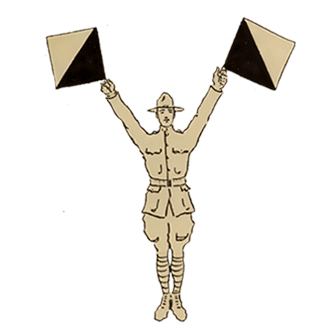
Comments?

Comments?
Skip to Next
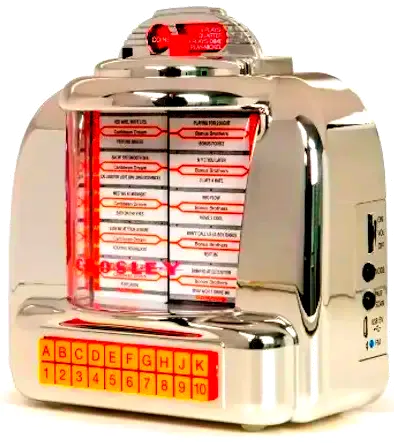
This is the description
Herb Hickerson and I shared our Carlsbad, New Mexico debuts.
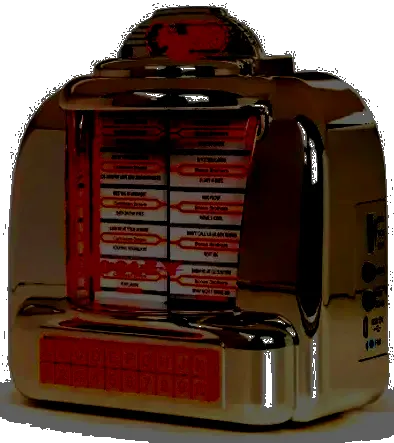 🎶 Listen to 1955-56 🎶
🎶 Listen to 1955-56 🎶
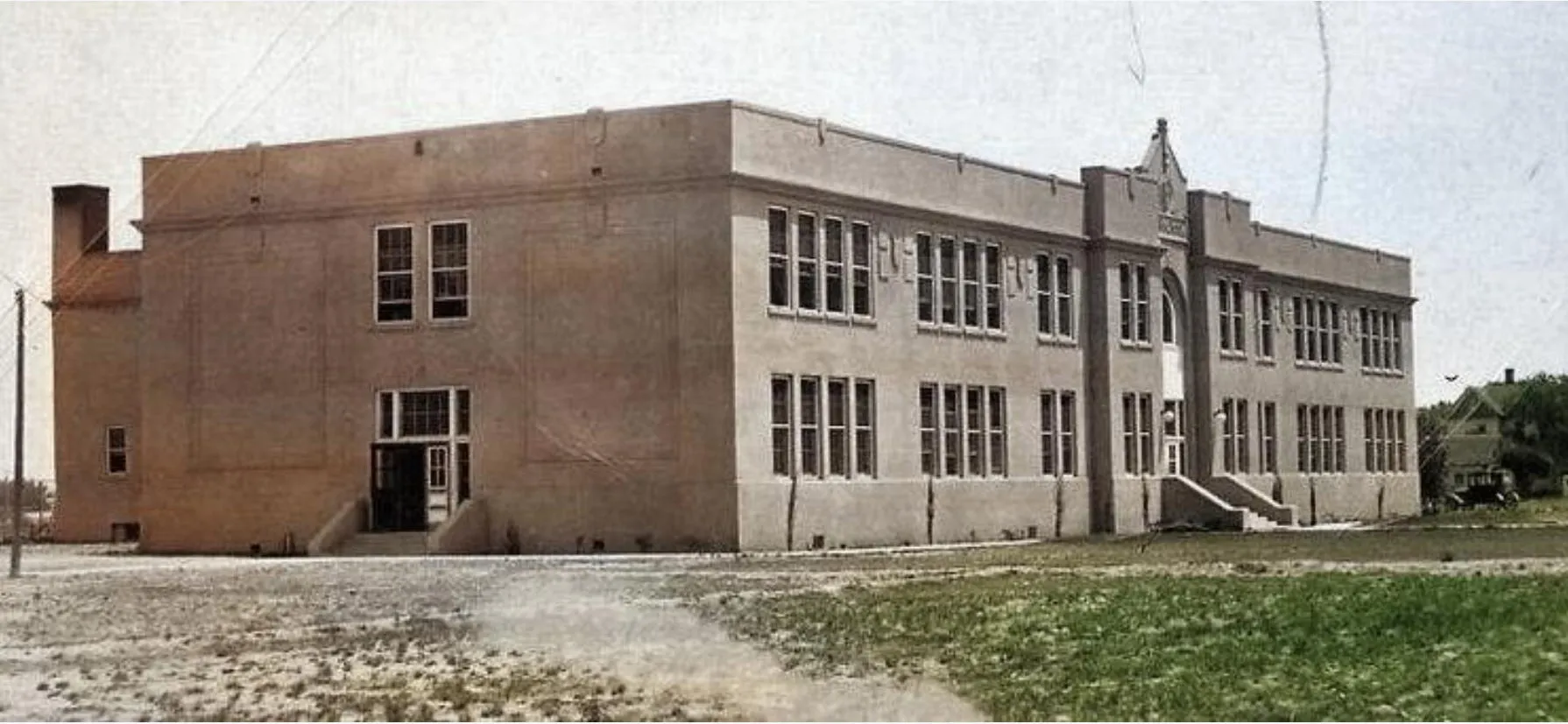
Pictures of the former Eisenhower Jr High in Carlsbad are scarce. Here's one from 1929, when it was the high school. Click for a popup about Mr. Hickerson's early years in Carlsbad.
In 1955 I started eighth grade at Eisenhower Junior High, having moved that summer from Rangely, Colorado. It was an overcrowded, classical school building with the overflow out back in salvaged military barracks. My mother took me to register, and a few days later I reported to the downstairs, left-front corner room.
As I passed by a small knot of adults, placid in the swarm of straining-to-be-cool teens, I avoided eye contact, and wondered which would be my homeroom teacher. One of them had a salient physiognomy.
The desks near the windows were home to a cohort of rowdies. I gravitated to the other side. Someone burst in heading for the fenestrals, and miming an excessive overbite, as only a thirteen-year-old can do. "Is he this one?" He'd spotted our teacher, Mr. Hickerson, in that knot of adults, and was imitating the prominent malocclusion I'd noticed.
Mr. Hickerson had arrived in Carlsbad from Oklahoma that summer, and his most obvious personal trait became unremarkable the moment we met him. We didn't then know he'd been a baseball and basketball star in high school and college. Or that he'd been a high school principal for several years. Nor had we yet heard the story he liked telling on himself about a high school basketball game. A noisy, and noiseome, fan kept shouting "get that pumpkin eater out of here!" Herb's mother tapped the offensive heckler on the shoulder and said, "The Lord gave that boy those teeth, and he's my son." As Mr. Hickerson told the story his mother's authority shot from his eyes like solar flares. He was a walking lesson in self-confidence and clear-eyed reality.
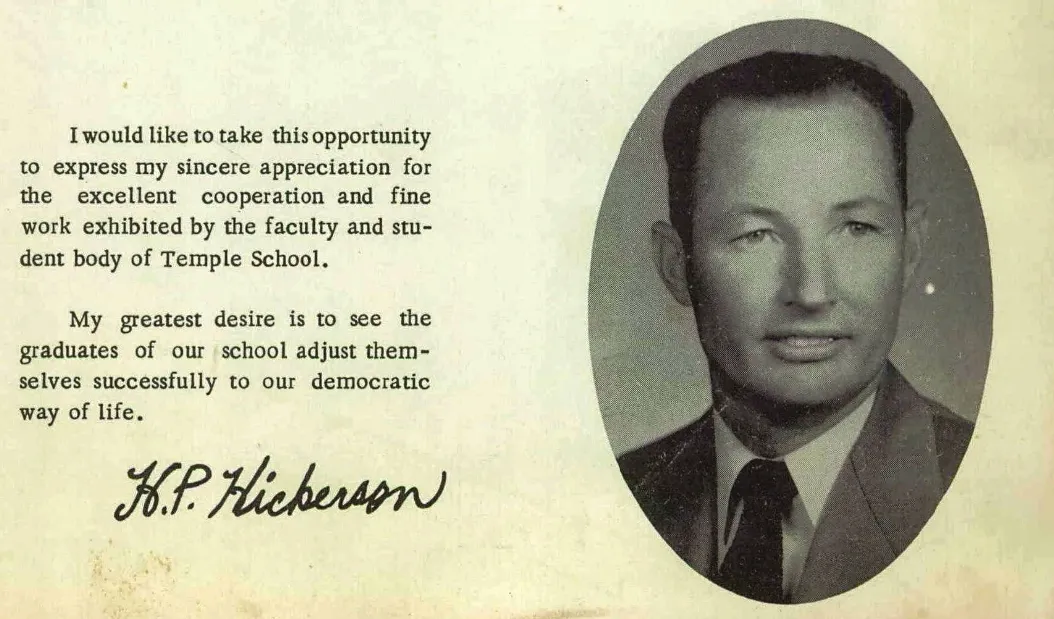
This image from the Temple Oklahoma High School Yearbook of 1955, tells us about Herb Hickerson's aspirations, and links to further reflections on his Pre-Carlsbad days.
Thirteen-year-olds have insufficient context to appreciate the value of a teacher like Mr. Hickerson. It takes time. He had a presence, and it was rooted in integrity, an understanding of his role, an instinct for right-thinking, the humility to admit his humanity, and an unquenchable exuberance. It was years before I realized how his life had influenced mine, by harmonizing with the person I wanted to become even before I knew I should become anything in particular.
Eighth-grade math, at least in those days, was pretty-much a review of previous years, fractions, decimals, percentages, simple physics problems, some geometry without calling it that, and word problems designed to frame things in a context of reality. He sometimes gave the impression of not being overpoweringly smart, which gave us confidence we could understand if he did.
And yet, his pronouncements were questioned only by the perennially confused. "The sum of internal angles of all triangles is 180 degrees." We believed it when he said it, but after a session of drawing several triangles and measuring them with our protractors we believed it all the more after someone announced, "I think we have one that's only 157!" A quick inspection of the anti-Pythagorian's work brought the clarification, "You have to draw them with a straight edge. The rays of an angle have to be straight." Geometry was saved and no one felt stupid. A rule of thumb about percentages went forward with me forever, echoing at odd moments. "It'll almost always be 'is' over 'of,'" he told us (What percentage IS something OF something else).
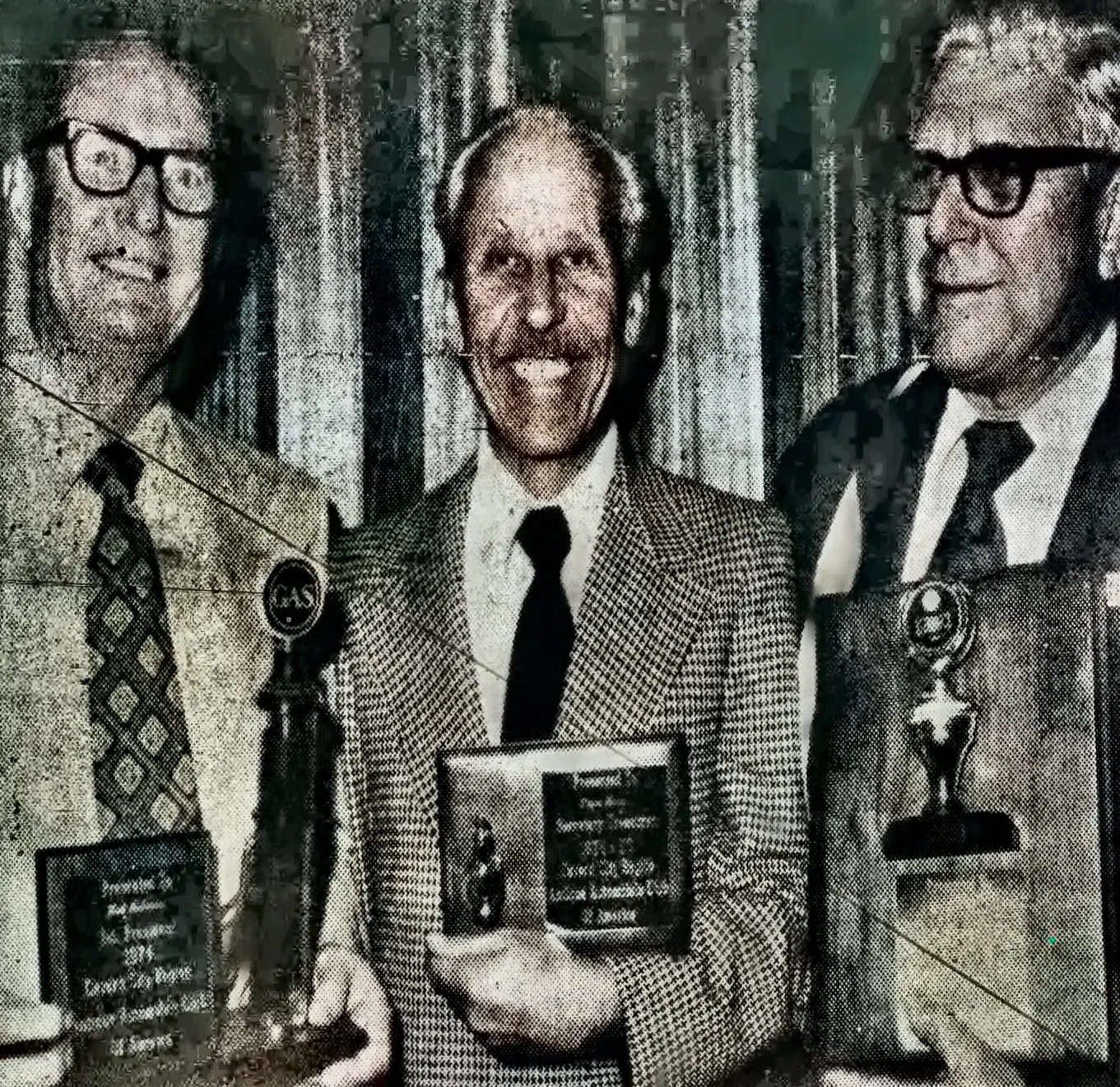
Herb Hickerson was 1974 president of the Cavern City Antique Auto Club. Pictured to his left are Wayne Reneau, Secretary, and F. C. Williamson, incoming president. The picture links to clippings about Herb in the 60s and 70s.
Once, Mr. Hickerson was doing something that would have gone better if he'd had a knife. Students began chanting, "Turk (not his real name) has a knife. Turk has a knife." Lot's of boys carried pocketknives in those days, as a handy, all-purpose tool. Mr. Hickerson played his part, calling Turk forward and insisting he produce the knife. The young man was carrying a switchblade, an artifact of the 1950s Blackboard-Jungle side of school, and reluctantly handed it over. Mr. Hickerson effected surprise. He snapped open the blade, closed it, and snapped it open again. He gave Turk a wide-eyed, what-am-I-seeing kind of look. "Is this legal?" he asked. Turk mumbled something.
Then, Mr. Hickerson used the knife, finished whatever he was demonstrating, and respectfully handed it back. "Keep this in your pocket," he said, or something similar. He knew the rules. He knew the boy in question. He avoided doing dumb things.
Herb could tell a good story, and he had lots of them. Many involved things he'd done, or claimed to have, and some involved his oldest boy, Larry, a few years younger than we were. He bragged a lot about Larry, his athletic ability mostly, and it went beyond the bias of a proud papa. This Larry, whom none of us knew since he was still in grade school, and was new to Carlsbad that year, was allegedly a possessor of extraordinary skill.
Mr. Hickerson was such a voluble storyteller, even a gullible 13 year old might start to wonder if some of the details tugged the edges of reality.
When we learned about speed, and relative speeds, cars pass each other at a combined speed, for example, and Mr. Hickerson put the concept firmly in our minds by telling about the days when he managed an airport. Oh really? some of us thought.
"Things were slow in the flying school, and it was a windy day, so I sent someone up with instructions to fly into the wind as slow as possible. The plane would stay in the air at a flying speed lower than the wind speed, and so it actually went backward over the town. We got all kinds of phone calls wanting to know if we'd gotten the propeller on backwards." Great story. Makes clear the relative speed concept. But. I never really believed it. Mr. Hickerson running an airport? Really?
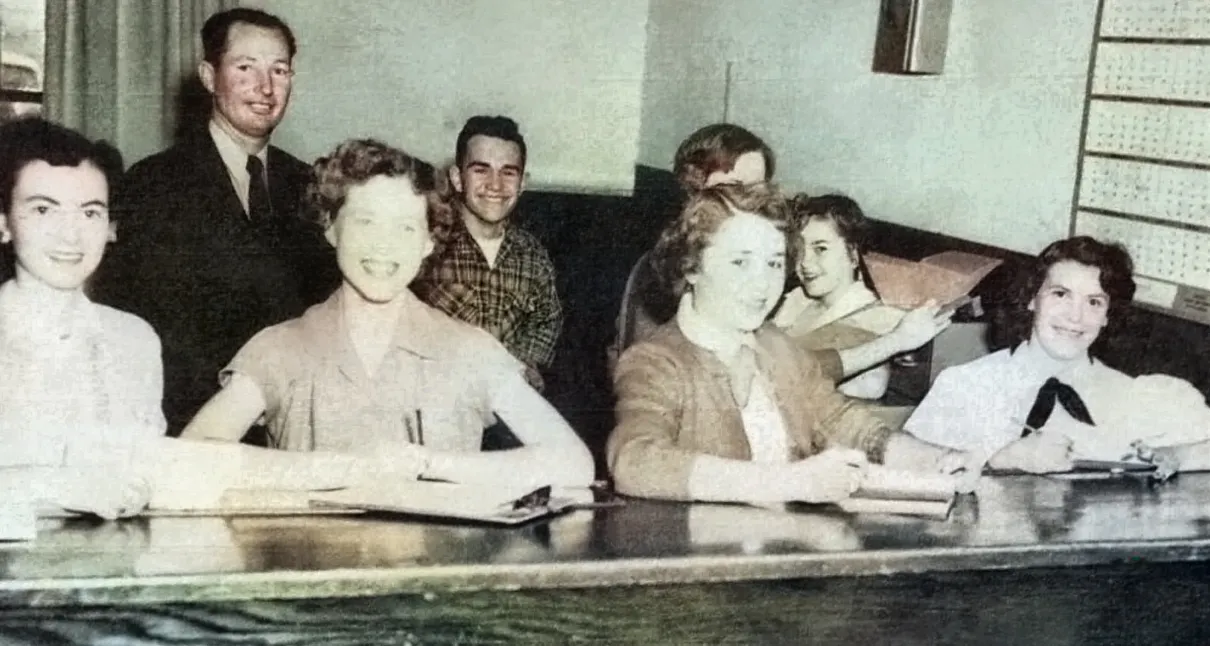
Leadership matters. Here is a reflection on the history of Temple High School, published in the yearbook in Mr. Hickerson's last year as principal, 1955.
Young people learn to calibrate the things adults say. They learn that normal communication can bend objective truth into caricatures that impart a more general kind of truth. Young people learn to know when something should be believed literally or figuratively. That too is an important lesson, and one I long assumed Mr. Hickerson was indulging with his stories about athletic events, and in particular the airport stories.
It's time to take an adult view of Mr. Hickerson, and find out who he really was. It's amazing to discover he was almost exactly who he said he was.
Herbert Pershing Hickerson was born in 1918, the eleventh of thirteen children born to Henry and Metta Hickerson in Harmon County, Oklahoma. That middle name almost certainly reflects the popularity of General Pershing in 1918, when Americans went off to end all wars. He starred in baseball and basketball for the Hollis High School Tigers in the late 1930s, and for his college teams, later. His pitching led the local Hollis team into the state sandlot finals in 1937.
He studied at Southestern Oklahoma State University in Weatherford and Sayre. He interrupted his college to become a civilian flying instructor during the war. During that time he was manager and part owner of a local airport. He later earned a B. S. from Southwestern, and a Masters in school administration from the University of Oklahoma.
He taught school in Temple, Oklahoma, moving swiftly into the Principal's office. In 1955 he received a huge raise in pay to move to Carlsbad, New Mexico as a math teacher and coach. A few years later he took over as principal at Eisenhower Mid High, retiring in 1978.
My memories of Herb Hickerson are less for the math he taught me, and more about the other lessons.
Some lessons were tough, and one of the toughest I didn't understand for years. The members of our homeroom shared a band class. One day we had a substitute teacher and the class exploded into pandemonium. My friends and I made an effort not to add to the troubles of the timid teacher, but the class turned into an hour of honking, laughing and joking. The harried substitute reported her troubles to the principal.
We were scattered amongst several elective classes later in the day when an announcement came over the PA system calling the entire band class to the office. A bemused crowd of students milled around the hallway until the Principal came out and demanded to know who our homeroom teacher was. "Hickerson," someone answered. "Do you mean Mister Hickerson?" came the response, with some caustic comments about respect. We were remanded to the mercies of our homeroom teacher for suitable punishment.
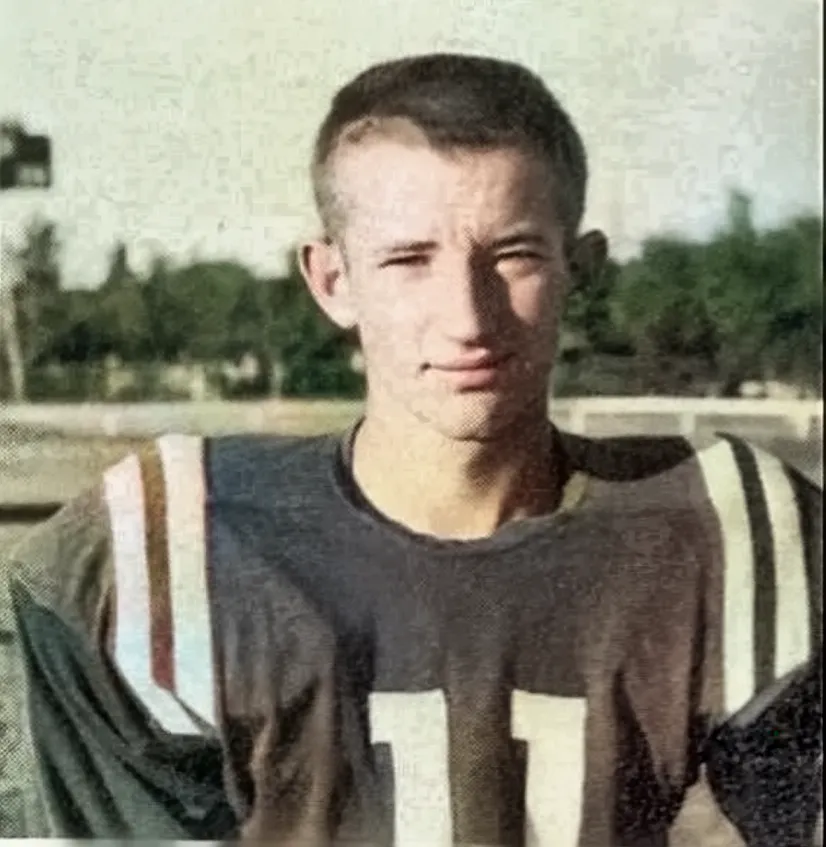
Larry Hickerson was a star athlete at Carlsbad, High School in 1961, when he died in an auto accident. The picture links to some memories.
What followed left me angry and outraged. I'd done nothing, I told myself, to disrupt the band class, nor had any of my friends, but all received the same punishment. We were to write a theme on "Etiquette." Mr. Hickerson paused in his sentencing, and continued, "Not a hundred words, not a thousand words, not five thousand words, but a ten thousand word essay, due on Monday. And it better be good." It was a testimony to his commanding presence that no one dared dispute the details of the crime, nor the impact of the punishment. But we felt it. Many of us felt unjustly punished for the actions of others.
My outrage continued throughout the weekend, and for years afterward. I labored to get ten thousand words down on paper. For an eighth grader, a single page comprises an epic. This was the entire Library of Congress. It wasn't a good essay, nor even an essay, really. I copied several encyclopedia entries on subjects related, however tangentially, to etiquette. As I neared the magic number, I began suspecting no one was going to read it. I became even looser in my methods, stretching "important" to "very, very very important". Still, there was that threat of the paddle in those days, and I made sure of the word count.
Not everyone complied. Three or four of the more defiant boys, righteous in there belief they'd been unfairly punished for the acts of others, failed to get anything approaching ten thousand words. They went off to some unspecified fate in Mr. Hickerson's other office out in the gym (he was also a coach). There were rumors about what happened there, but the boys themselves were very quiet, and a rumor developed that they'd been sworn to secrecy by Mr. Hickerson, as he whaled away behind closed doors with his paddle at a basketball, sound effects of severe consequences being provided by the miscreants. Who knows?
It took me several years to appreciate Mr. Hickerson's point in punishing all equally in this incident. After some years as an adult, I began asking myself how he would have behaved had he been one of us, and I've come to realize he'd have advocated vocally for what he thought was right. If he hadn't wanted to be part of the rowdy class, he'd have stood up and helped the substitute with leadership and suggestions. None of us did that, and I've come to believe that was his point. In that situation we were either the problem or the solution.
I left Eisenhower Jr. High for High School, graduated, and went off to college. I thought I'd moved beyond Mr. Hickerson when, in the second half of my freshman year, I leaned his son, Larry, who excelled in sports, had been killed in a car wreck. That in-between age of late childhood and early adulthood forces us to look more squarely at human mortality. We're old enough to know people who've died, and, although I hadn't known Larry, I'd known his father, and felt a surprisingly deep remorse at his sudden passing. My memory of Mr Hickerson sitting at his desk in that eighth grade math class, bragging about his son like any proud father, would forever be superimposed on the sadness he would forever bear.
The full depth of Mr. Hickerson's character came home to me recently, as I read interviews he gave to the newspaper after his retirement, and, most significantly, about his role in a school management issue that arose in his final years of teaching. The 60s and 70s were not good years for career educators, at least for the good ones. We all know what happened on college campuses, when the students were handed control of social and academic life. Something similar happened in many K-12 schools, and many good teachers left in disgust. We have a window into this phenomenon in Carlsbad through a 1971 news article in the Carlsbad paper. The story can be read in a nearby popup window, but let's here recall Mr. Hickerson's role, which speaks directly to his character.
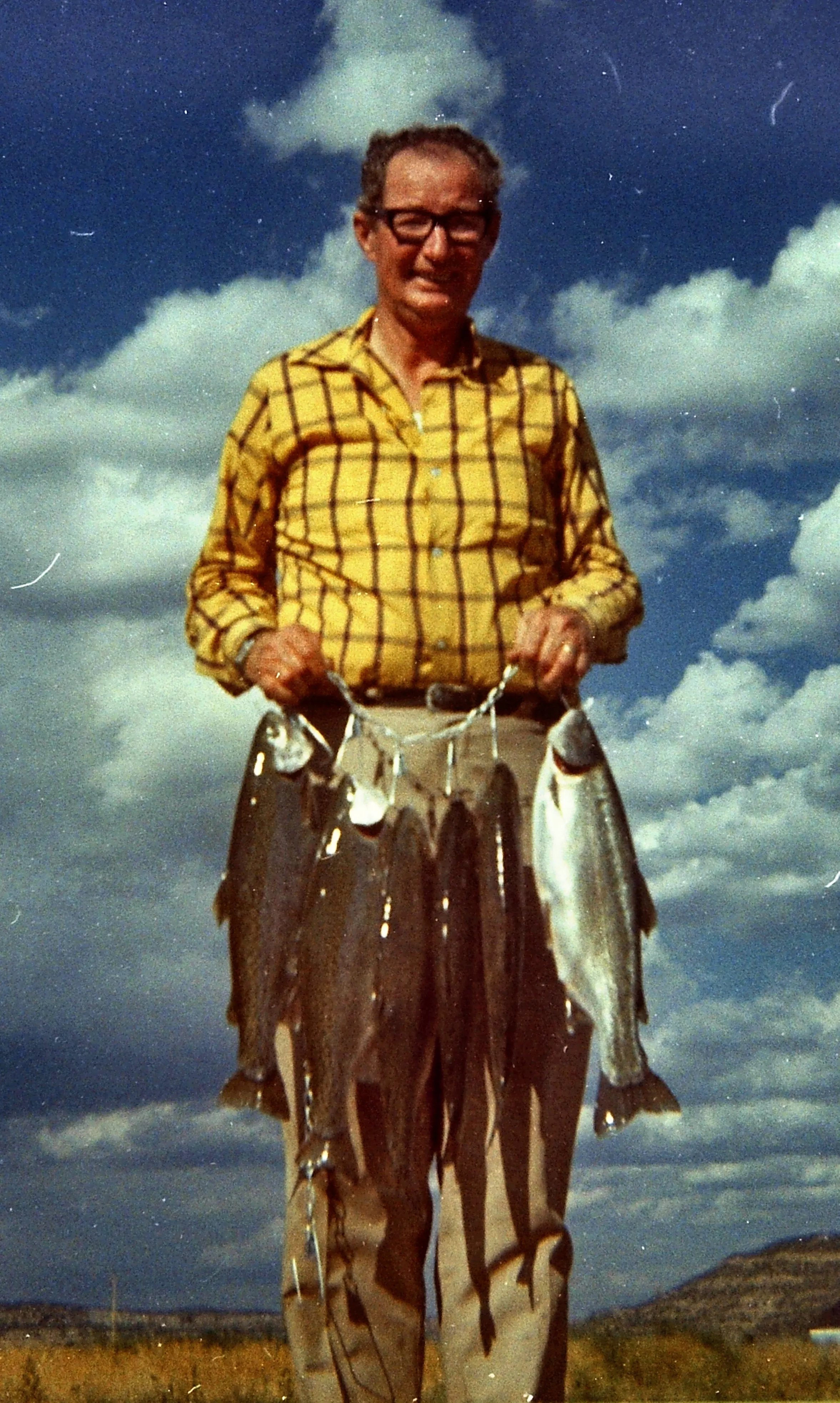
This picture of Herb Hickerson accompanies his Find-a-Grave entry. It links to a popup window on his retirement years.
In 1968 a local Carlsbad urologist, Dr. Arnold Franzblau, won a seat on the school board. He was a bright, articulate, competent man, a popular community leader who published extensively on urinary cancer treatment. Mr. Hickerson, then principal of Eisenhower Mid-High, was in a school board meeting when Dr. Franzblau raised a complaint about overzealous enforcement of the district's dress code. The complaint wasn't about Mr. Hickerson. It wasn't his fight, but he nonetheless rose in defense of his principles. He opposed a man with public support at least equal to his own, and far more academic currency. He could have remained silent, but didn't, because he believed the complaint was wrongly framed, and could lead to bad school policy. He spoke out, politely, effectively, and persuasively. That was Herb Hickerson.
My original impression of Mr. Hickerson endures. He was a well-intentioned, effective, engaging man of tight moral fiber. He loved to tell, and sometimes embellish, a good story. He loved teaching, and he was good at it. My youthful estimation that his tales of adventure were just a little too convenient to the needs of the moment, remain, but their factual underpinnings have turned out to be more substantial than I'd have guessed at the time. He really was a star athlete in high school and college. He really did throw a devilish curve ball, as he'd asserted when explaining a few principals of aerodynamics. He actually did run an airport, taught people to fly, and for all I know he may actually have engineered a backward flight over a little Oklahoma town.
My own most enduring memory of him, and the incident that has carried most notably into the future with me, occurred one spring day as I stood in line at the cafeteria. It was the second year in Carlsbad for both of us. I didn't have him for a class that year, and hadn't spoken to him for months. He saw me standing in line and ambled over as if hailing a long-time friend. He reached out for a friendly handshake, something teachers didn't do, and I extended my hand, pretending adulthood. He gripped, pulled back, and frowned. "Don't put your hand out there like a dead fish. Give me a real grip." We tried again. "We're not arm wrestling. It's a friendly greeting." I relaxed my hand to a steady firmness. "That's it. That's how a man shakes hands."
I don't recall speaking to him again, but his hand-shake lesson moved into the future with me. I'm not the natural coach Mr. Hickerson was, but more than once I've seen a look of self-respect flash into the eyes of a limp-handed stranger as his grip tightened on mine. Herb Hickerson has coached people he never met.
After his retirement in 1978 he became a local force in Carlsbad's senior golf scene, appearing often in the sports pages. And he was active in church youth groups. He lectured young people on the hazards of careless driving, using his own son's death as example. Youngsters later recalled how the overwhelming pain Mr. Hickerson poured into his instruction convinced them to drive safely. He probably saved many lives.
Herb and Lois gave an interview to the local paper in 1991. They recounted the twists and adventures of their life, and both agreed with Lois's estimate that they'd had a "blessed life." There was a happiness in their words, a gracious thankfulness for all that life had brought them.
In his later years, in the new century, he faced and persevered in probably his greatest challenge.
He and Lois were school days sweethearts, and they'd married as soon as she was sure it was time. In about 1993 She was diagnosed with alzheimers, and by 2000 She was in the Lakeview Christian Home, in Carlsbad. Herb cared for her throughout her illness, and visited her three times a day at Lakeview. She passed away in 2004 shortly after Herb had given one final interview to the local paper at age 85.
Herb Hickerson passed away in 2010, at the end of a long, well-lived life. He once observed that he'd taught most of the people in town, the sort of exaggeration that added a special luster to his credibility. In these days of virtue signaling it is pleasant to remember one whose moral posture was shaped by his moral fiber.

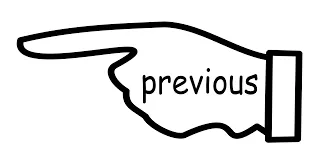
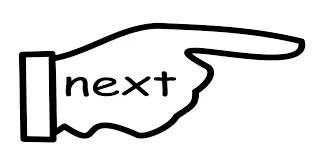
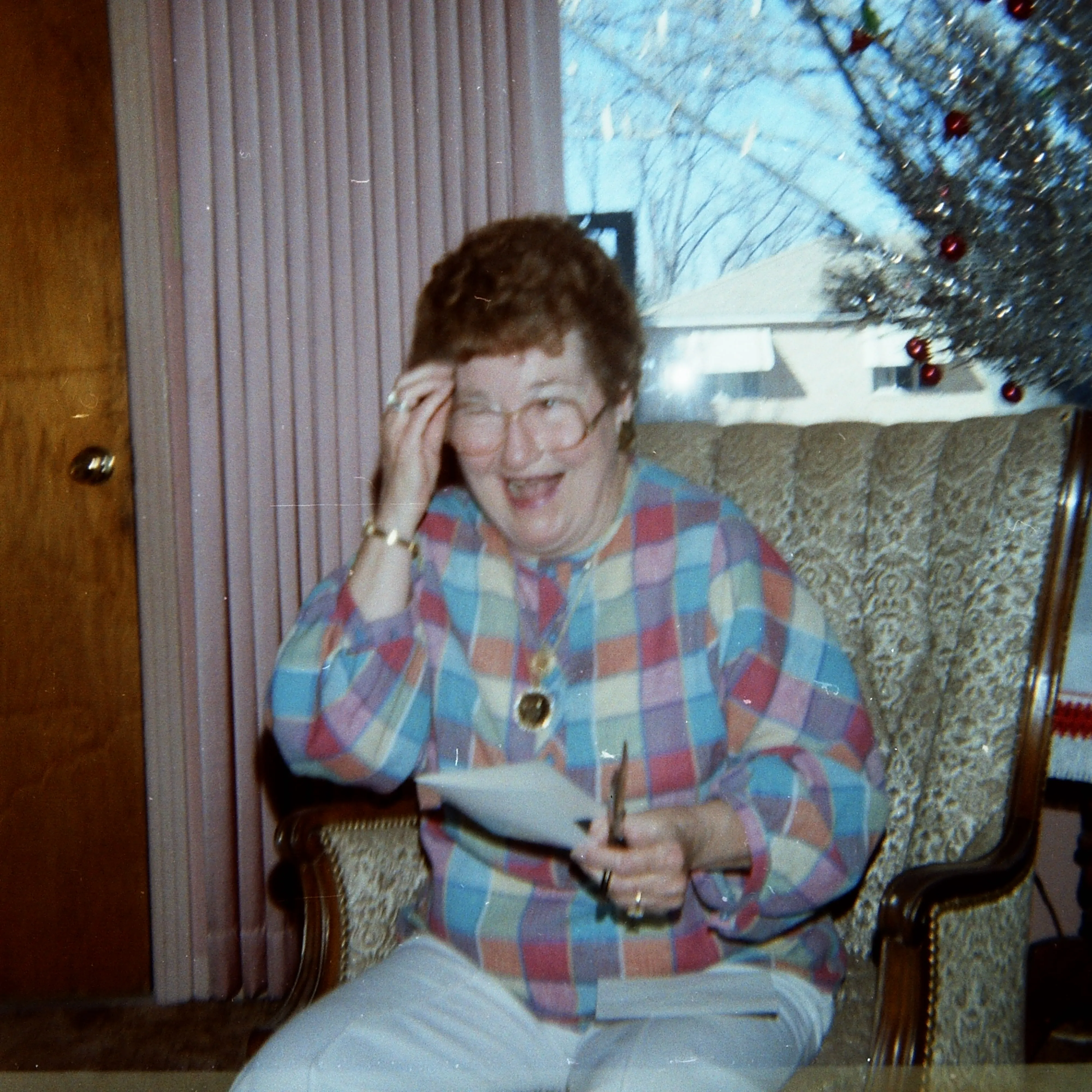
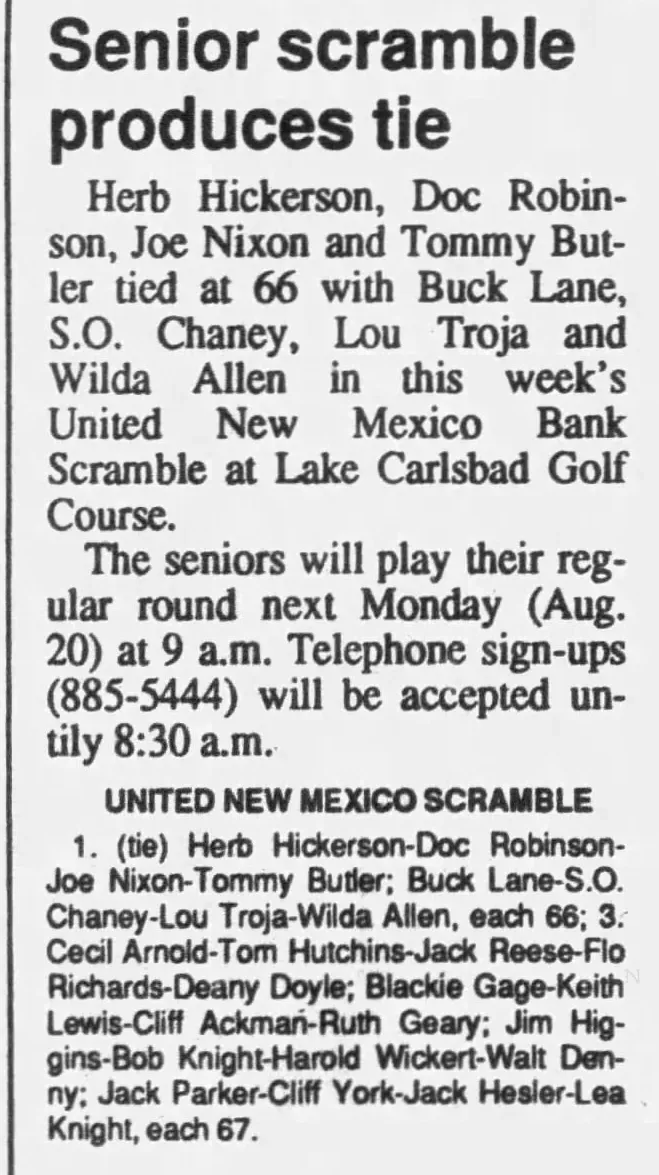
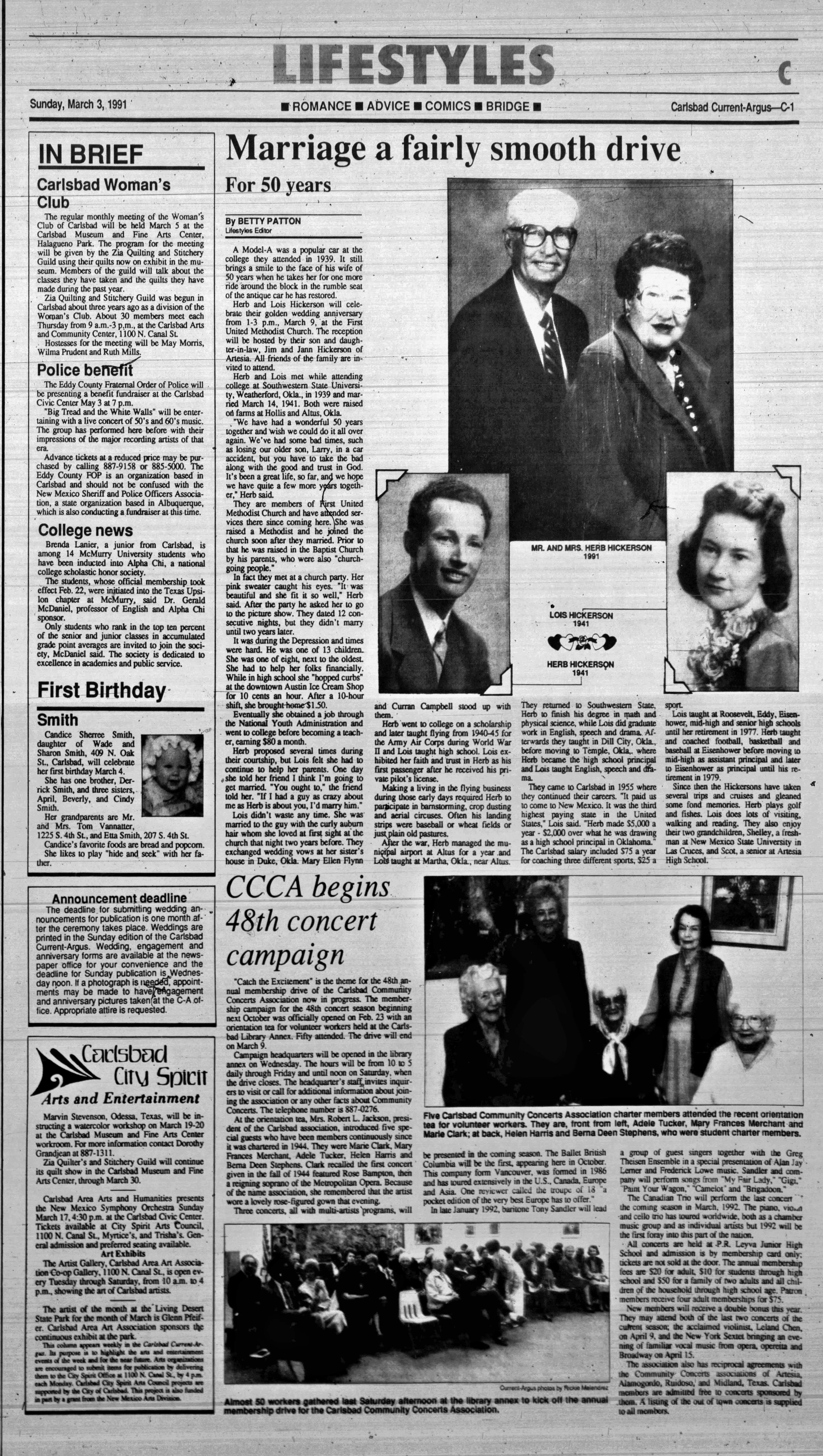
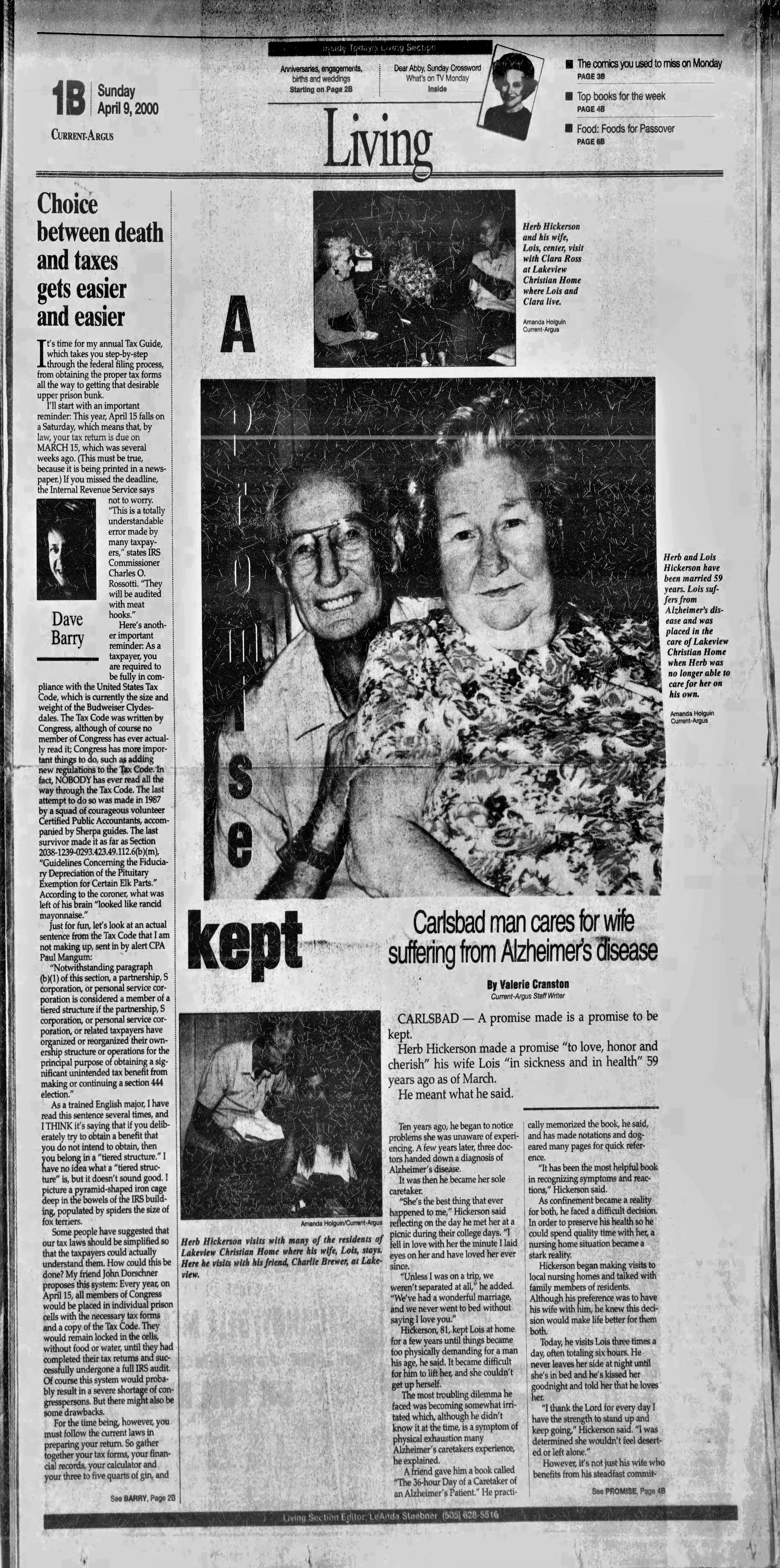
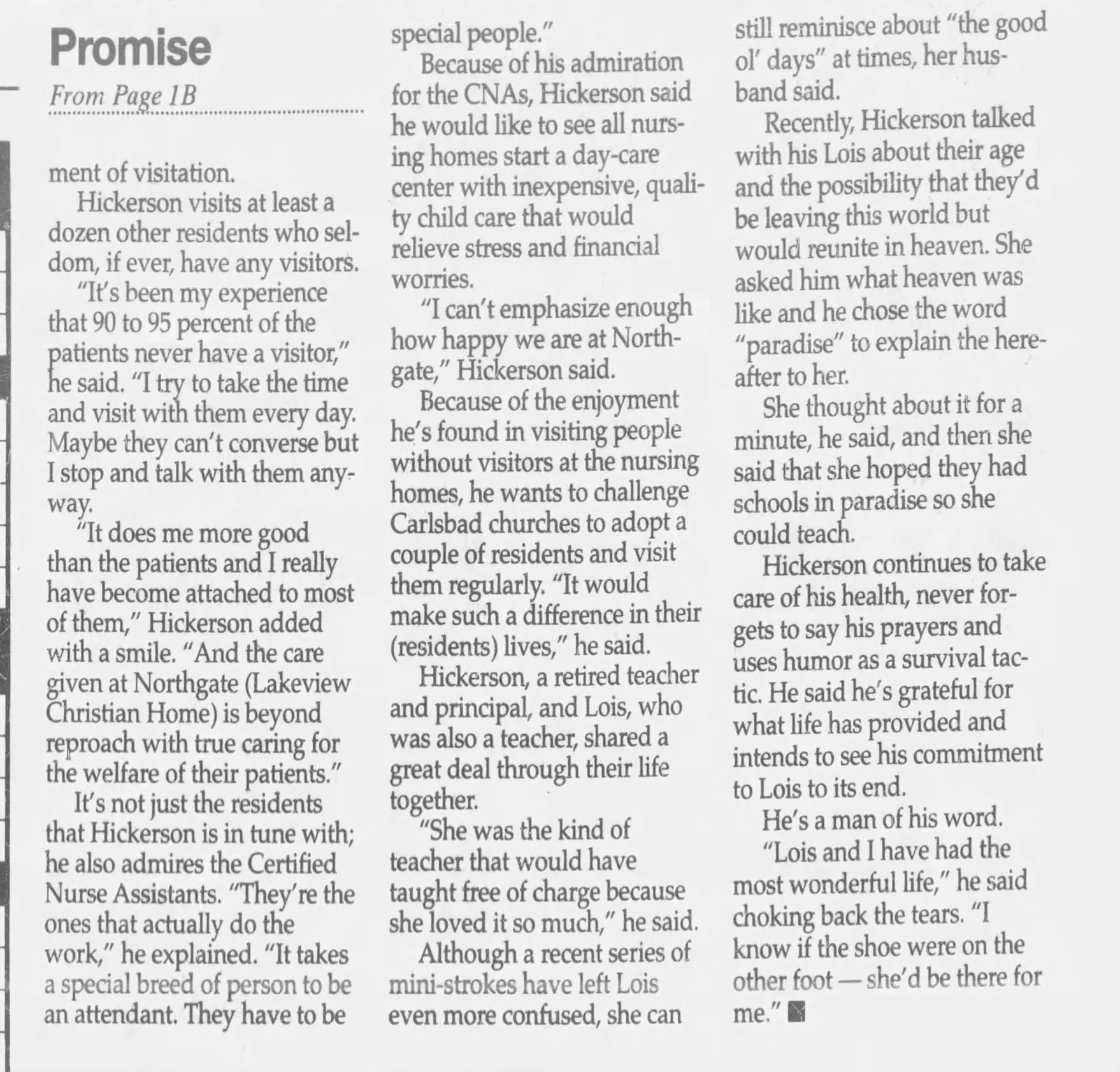
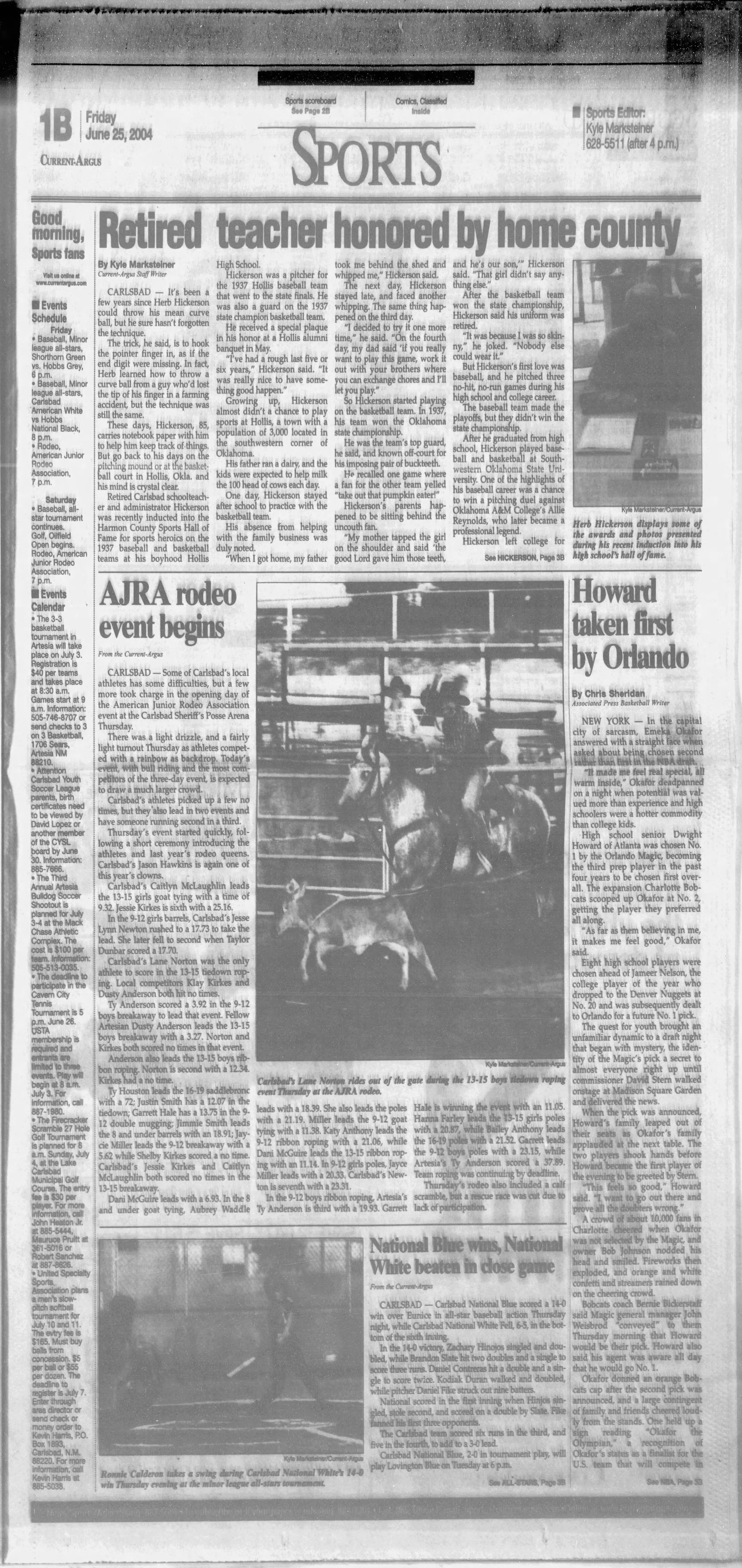
.webp)
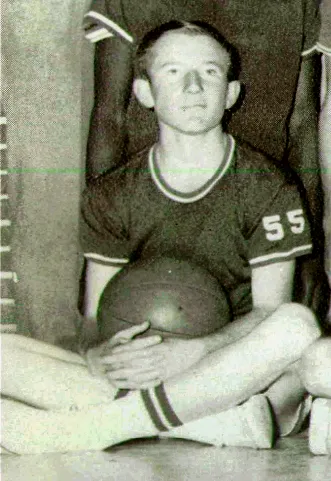
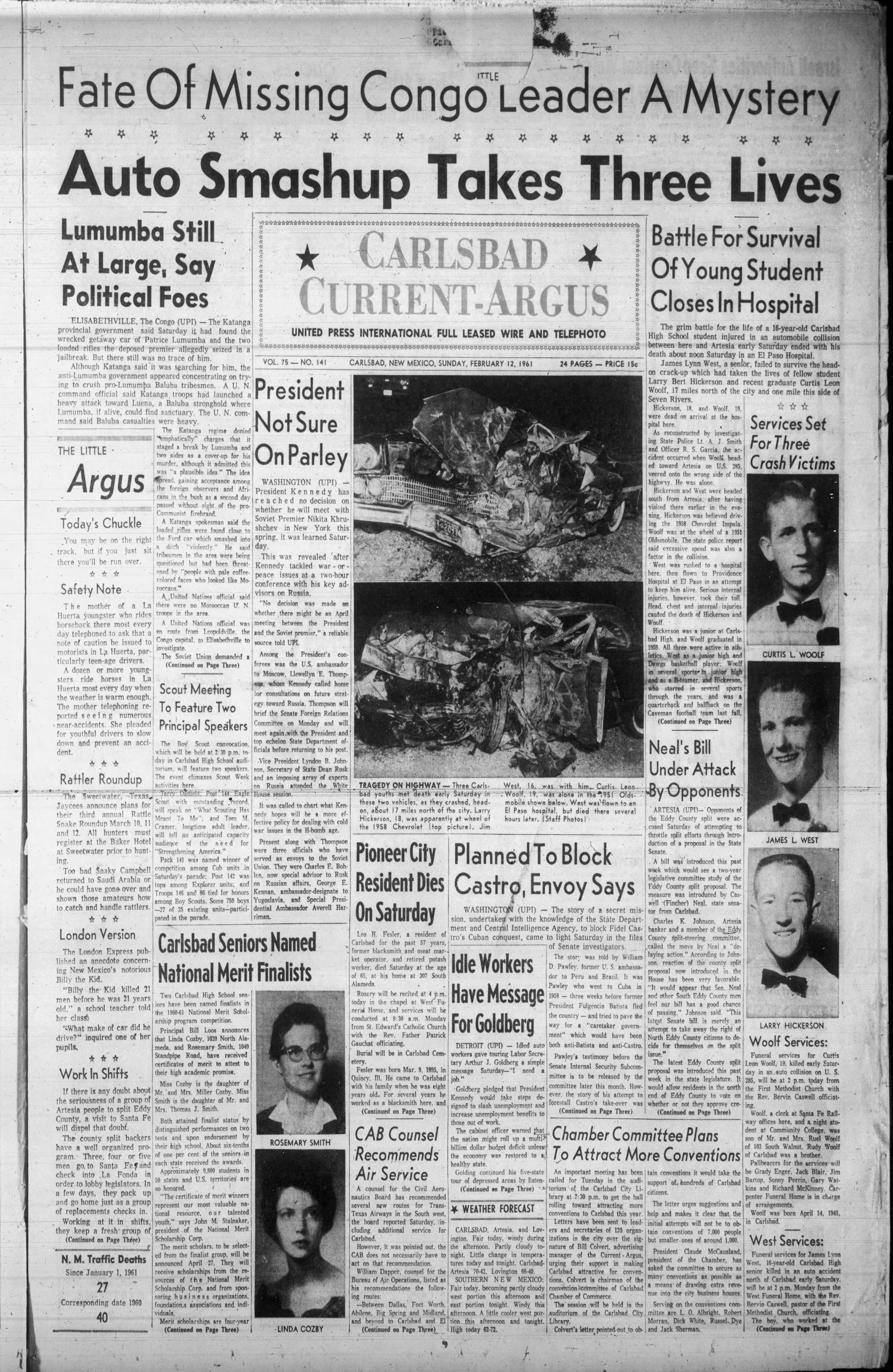
.webp)
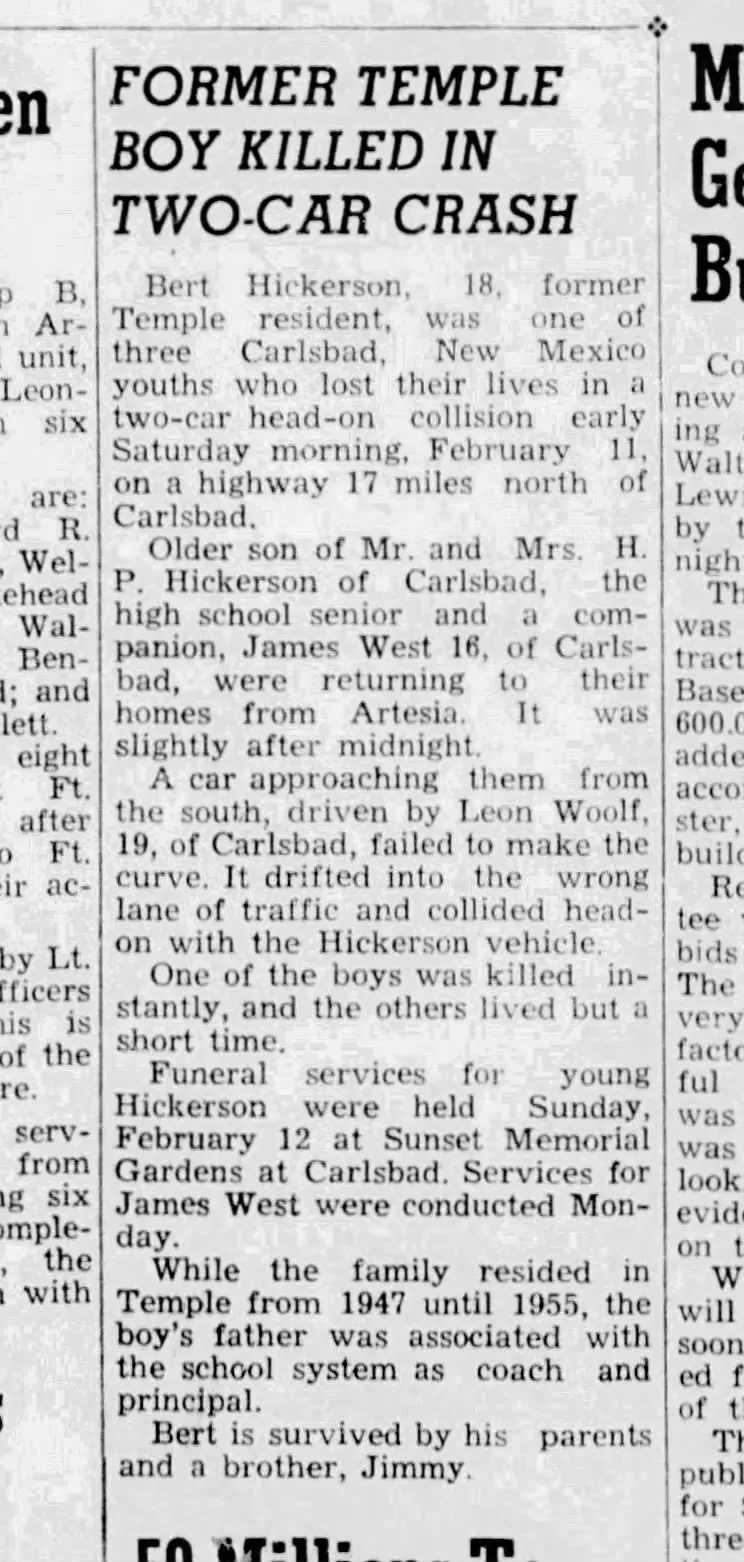
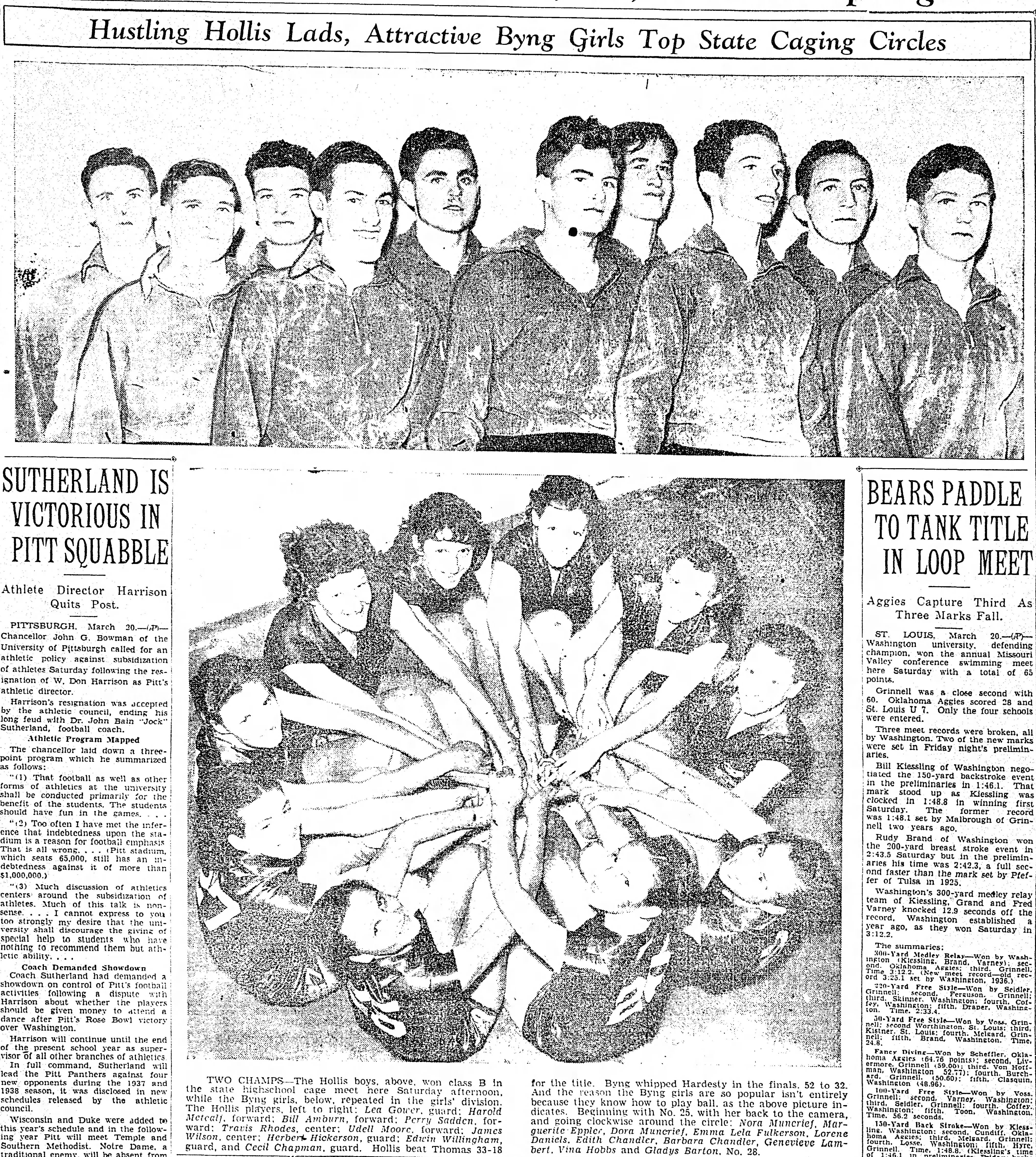
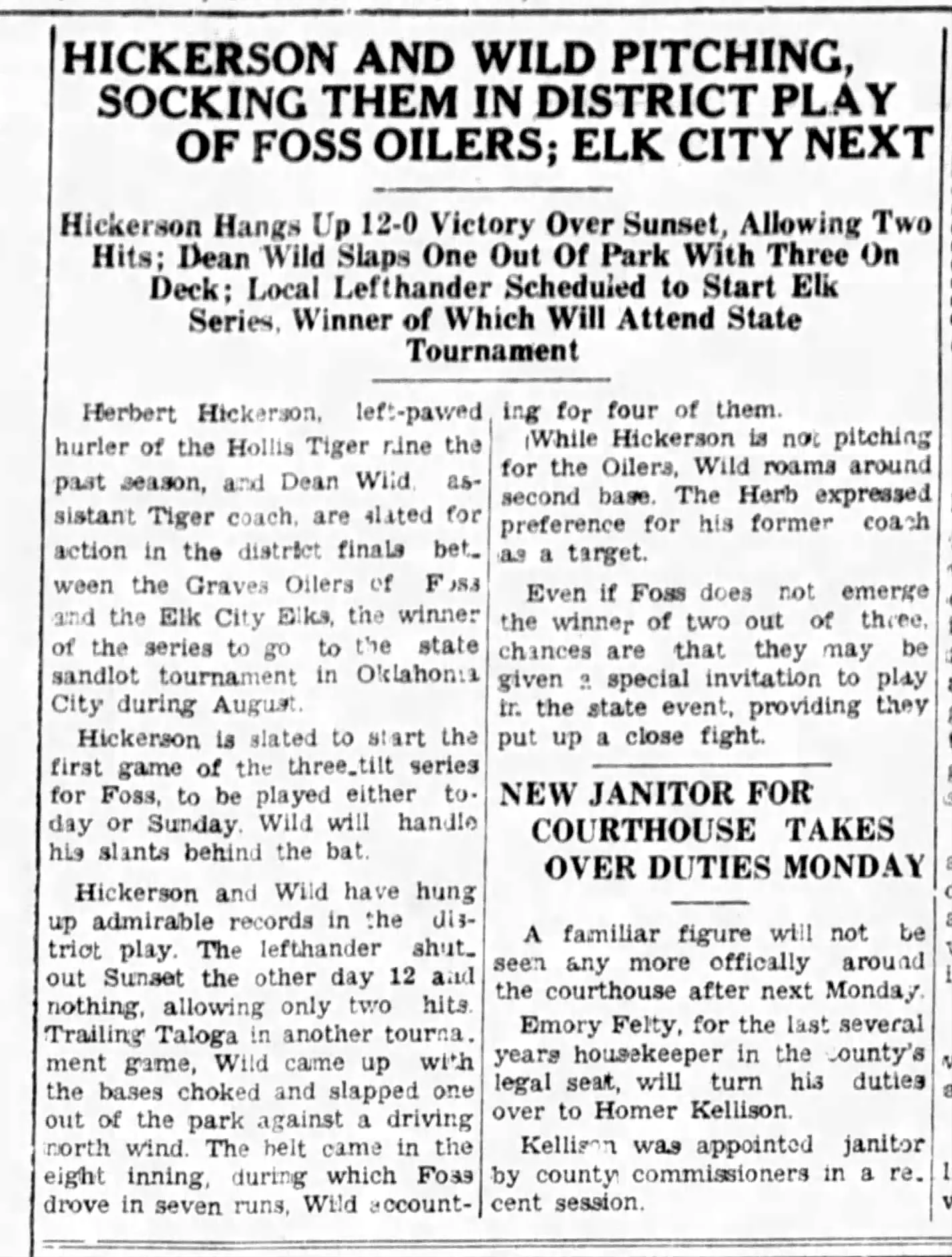

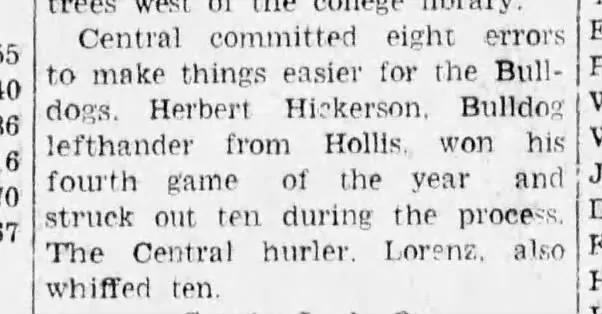
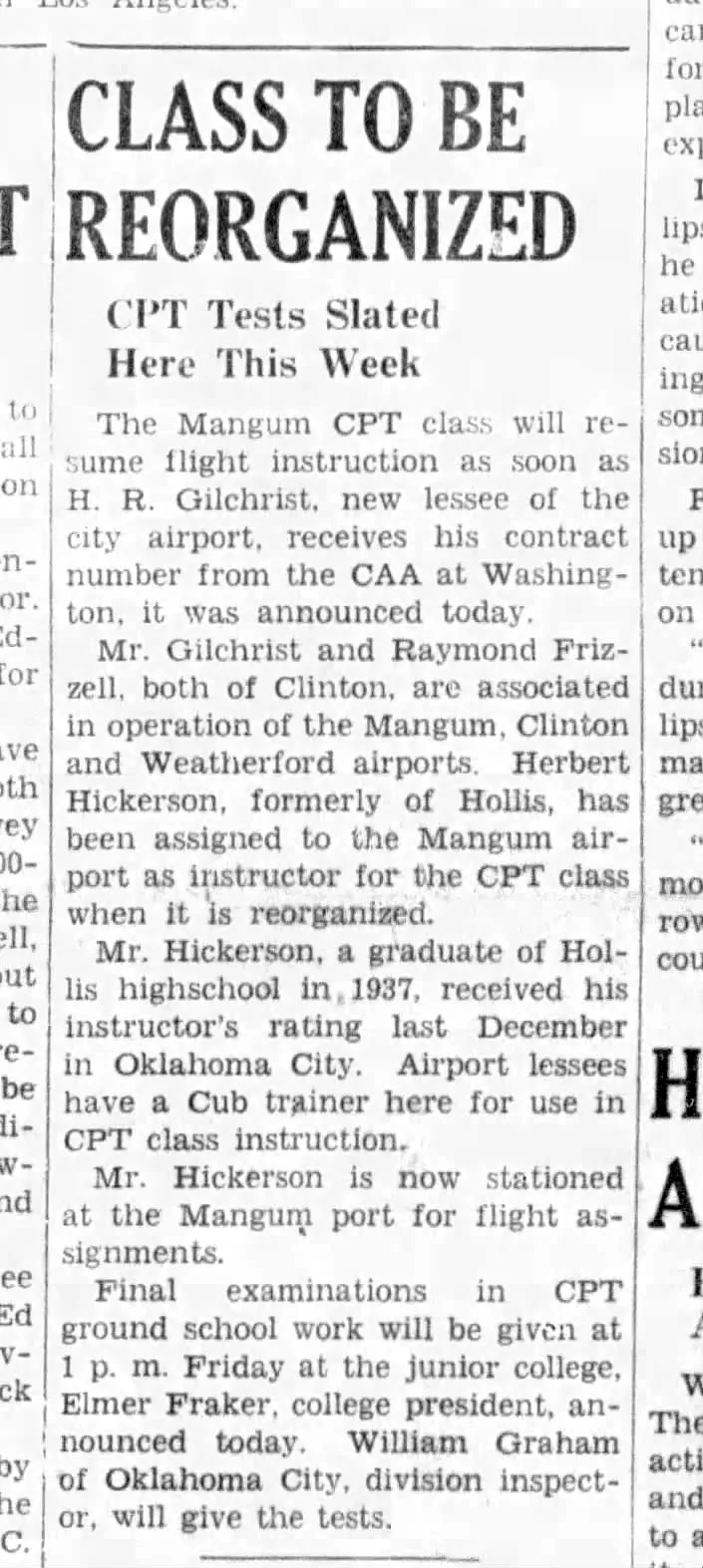
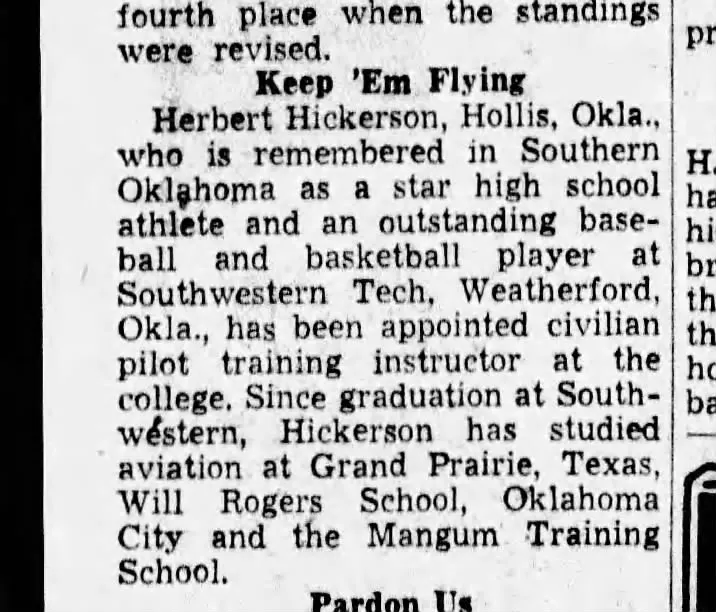
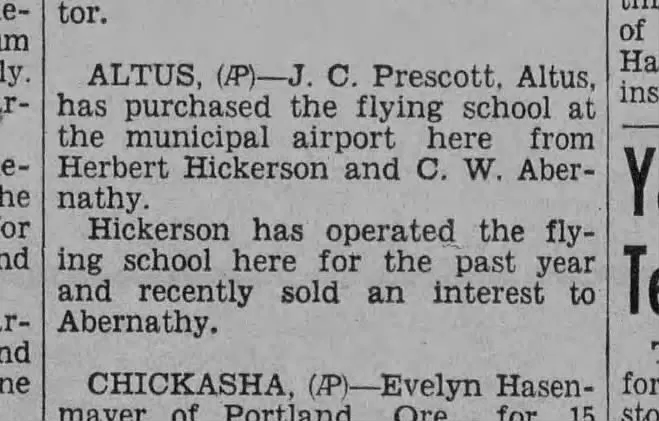
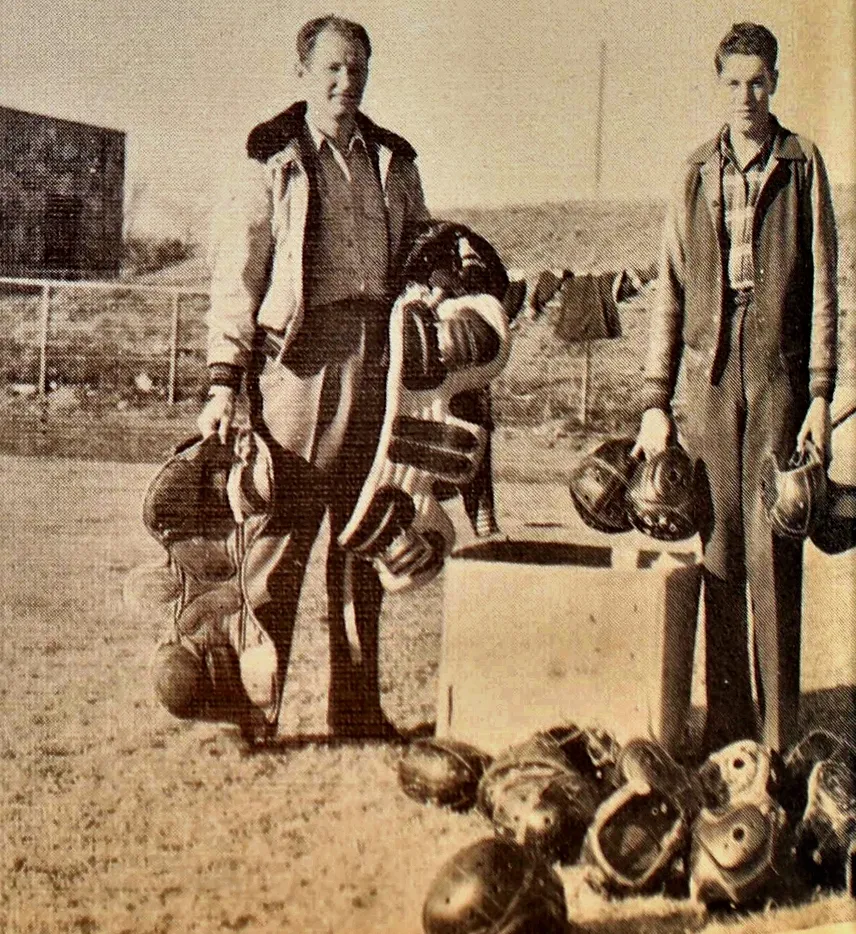
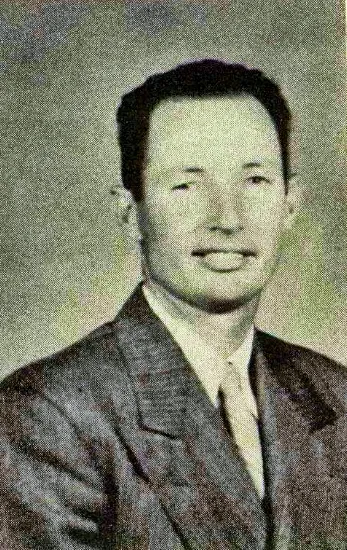
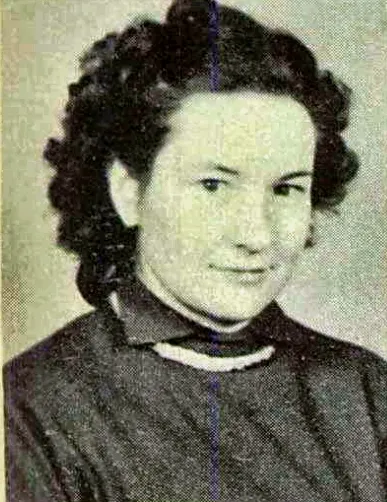
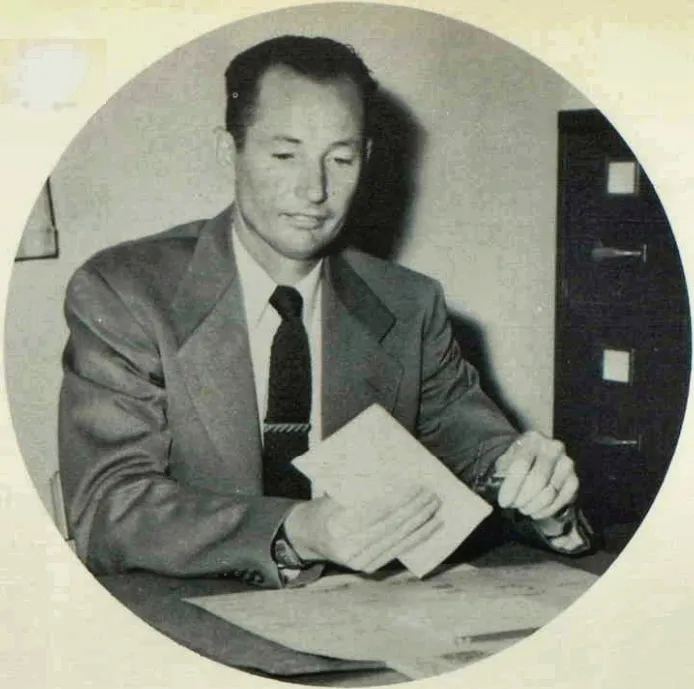
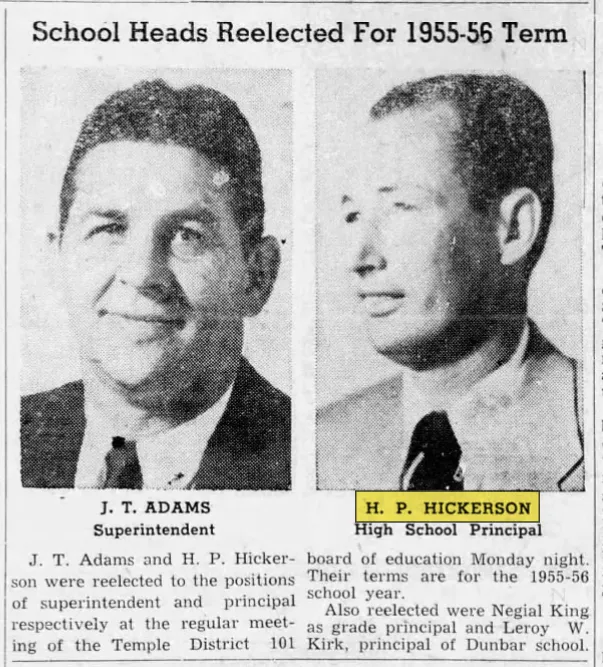
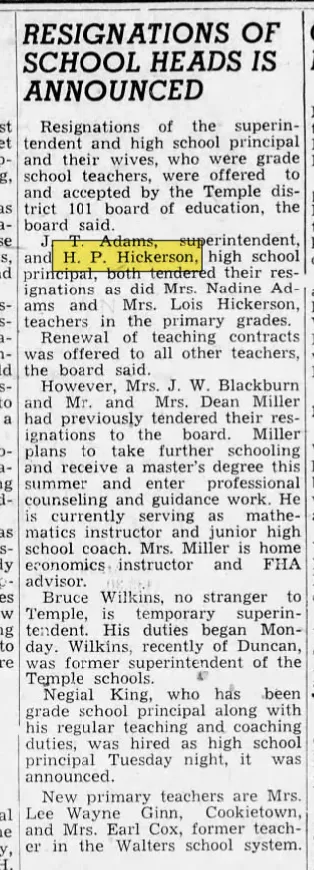
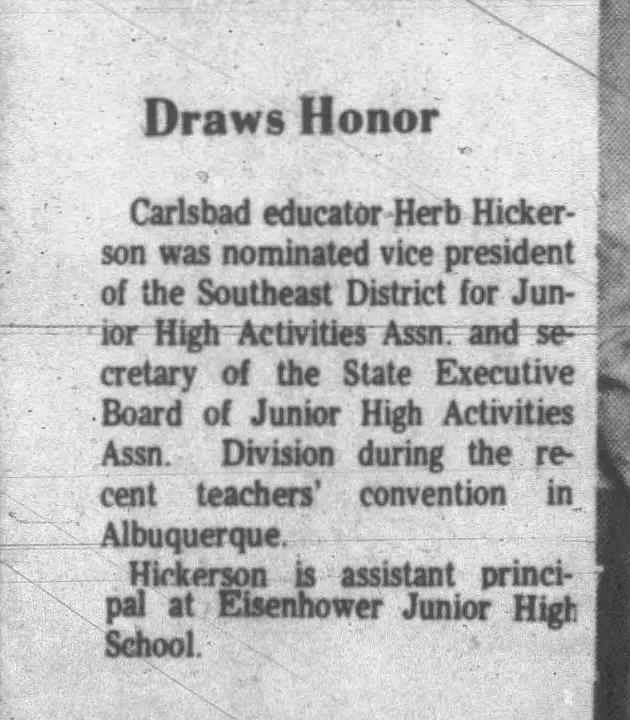
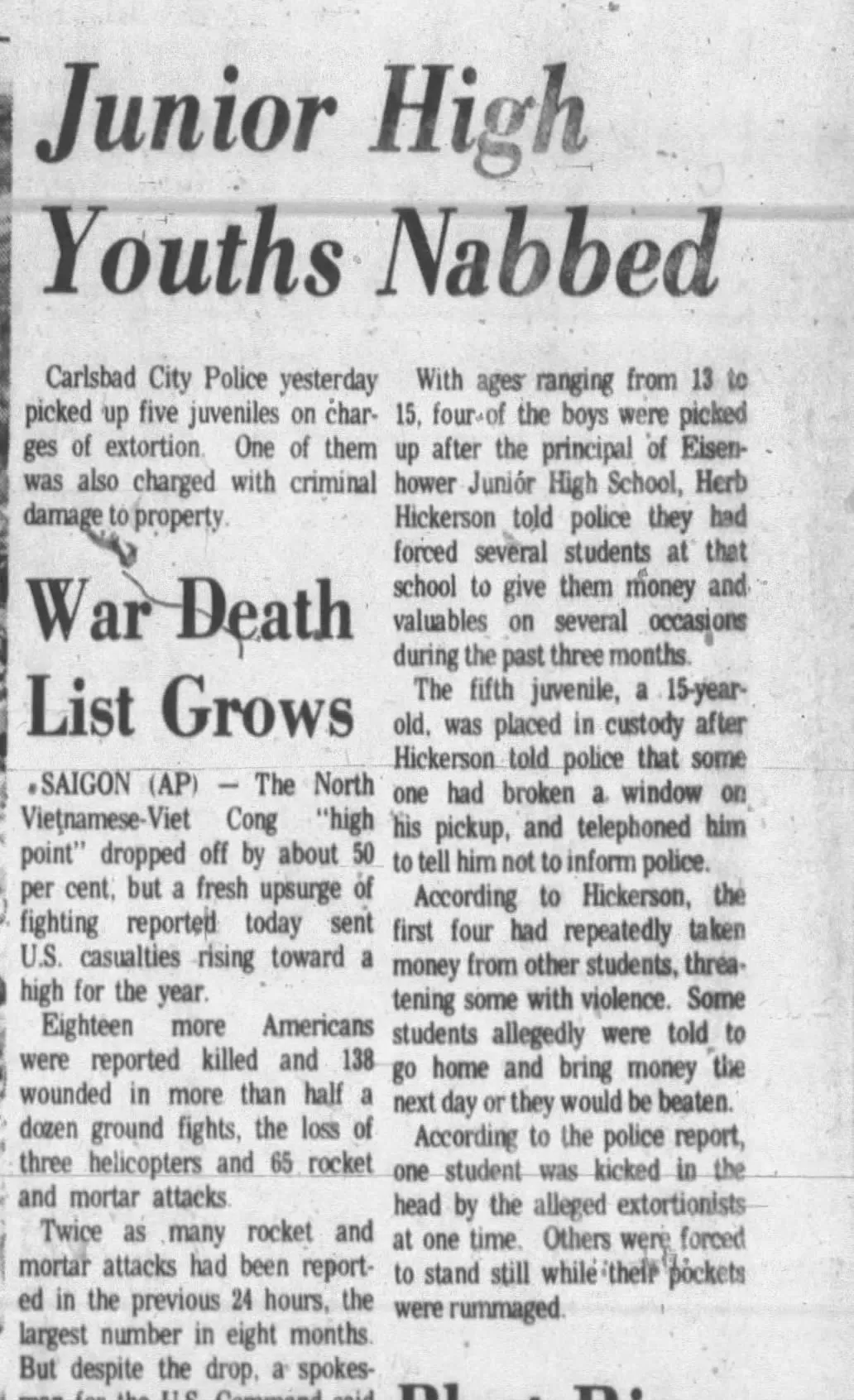
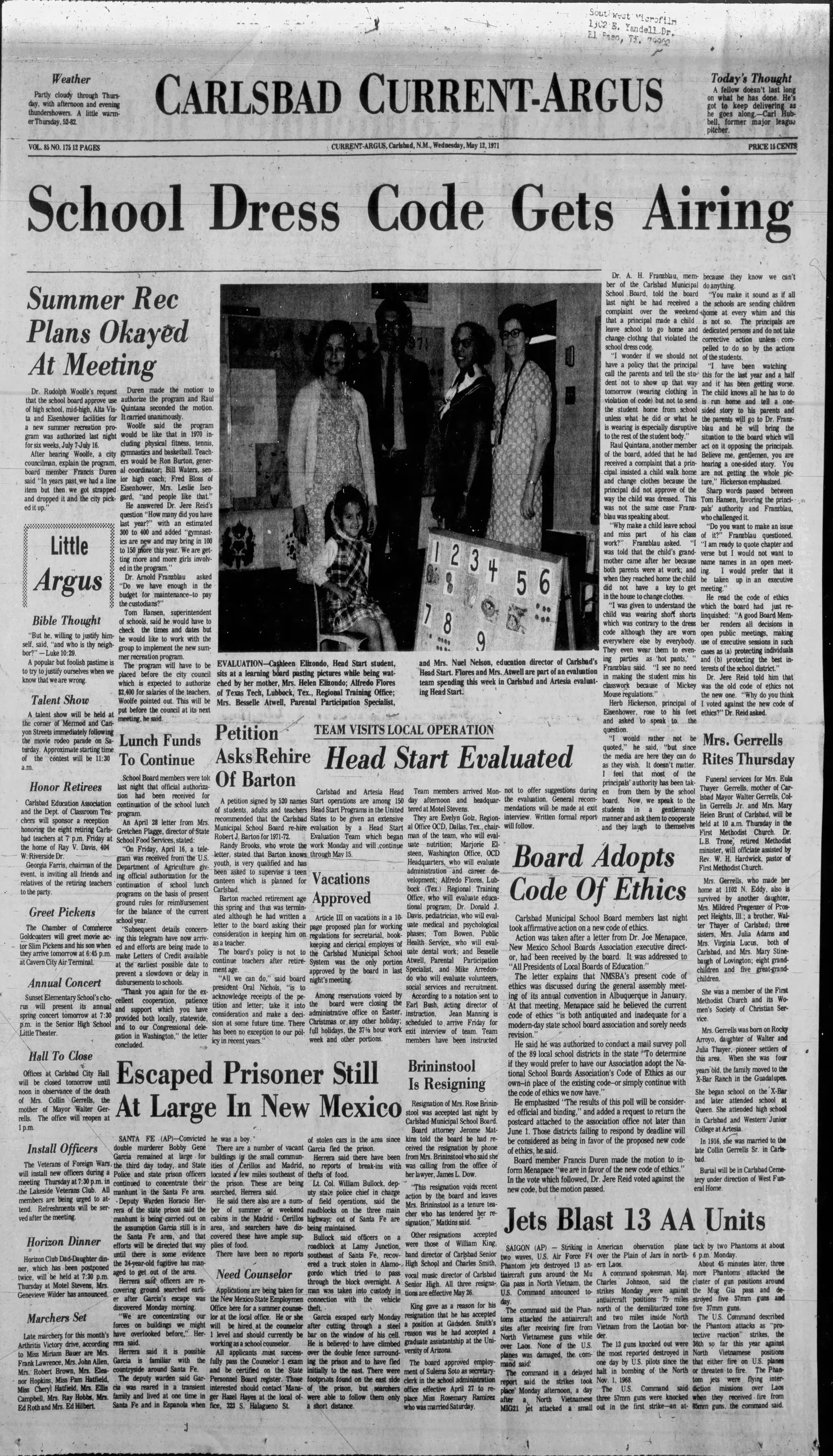
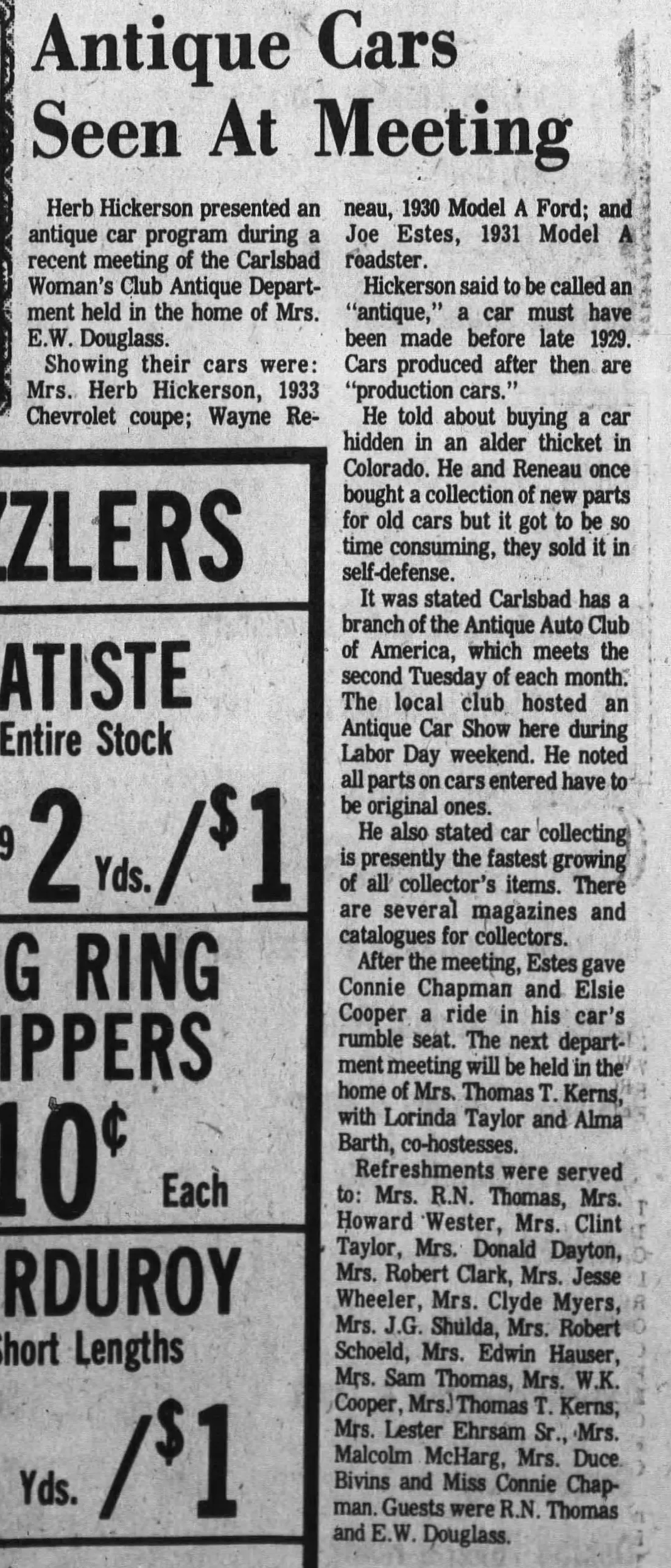
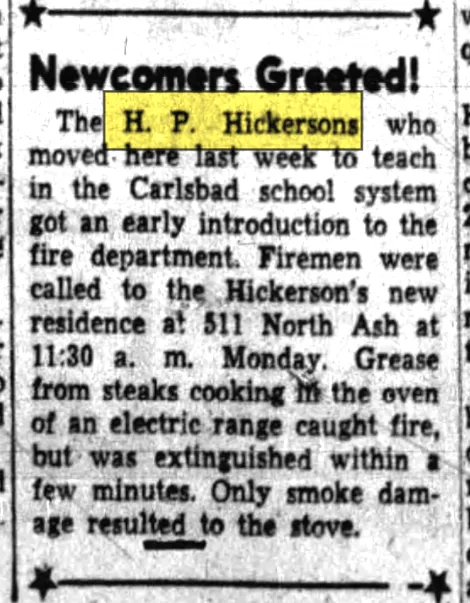
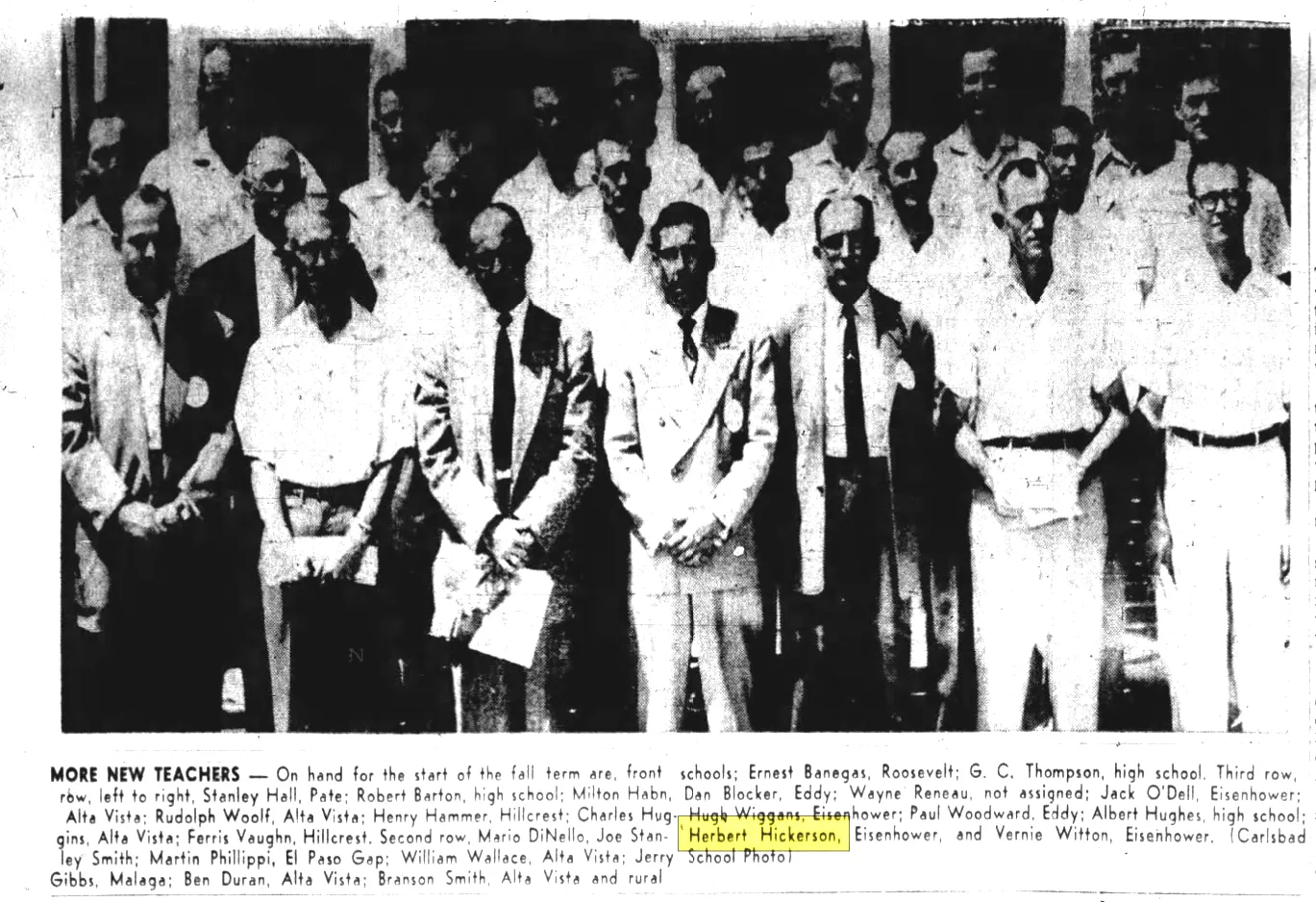
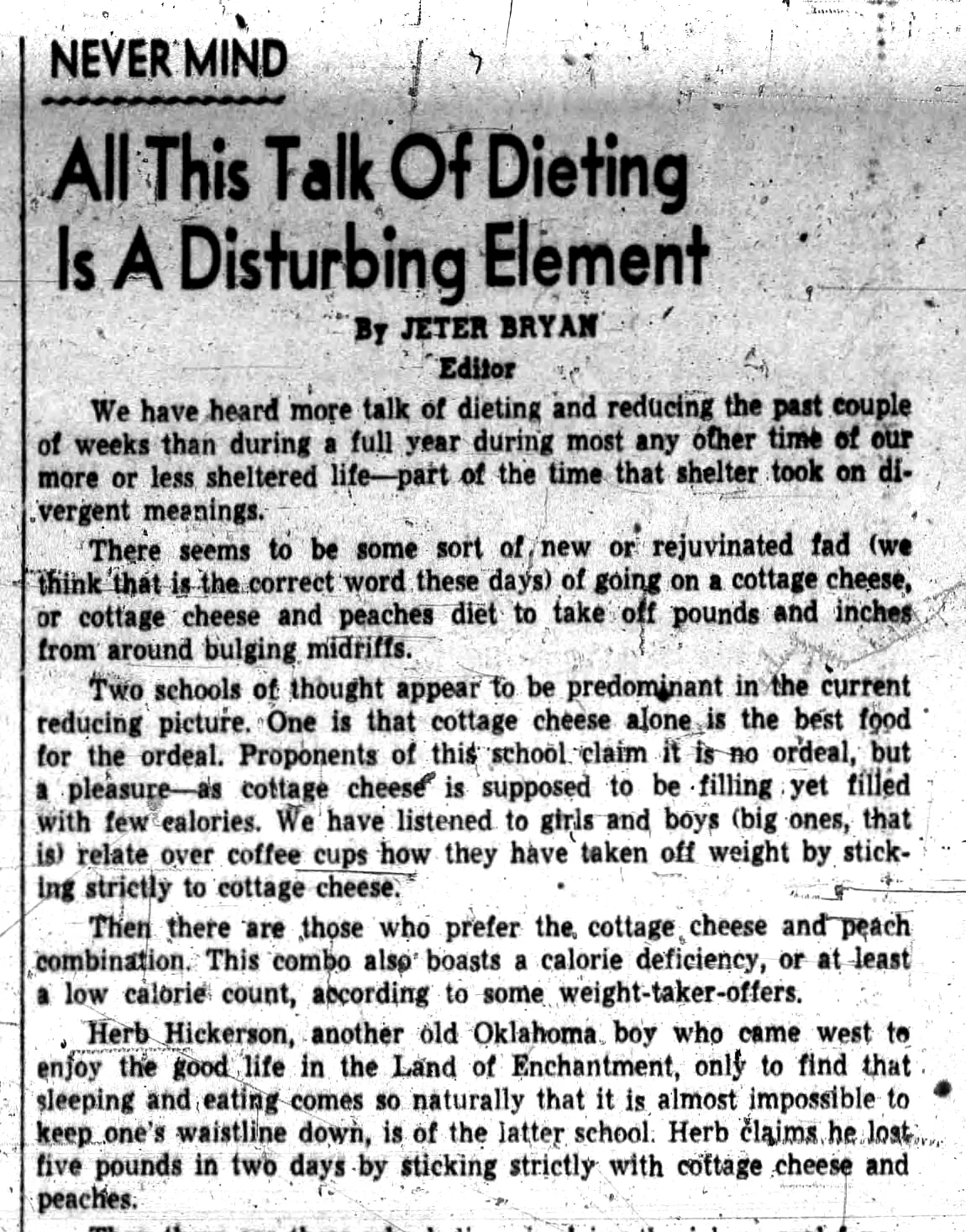

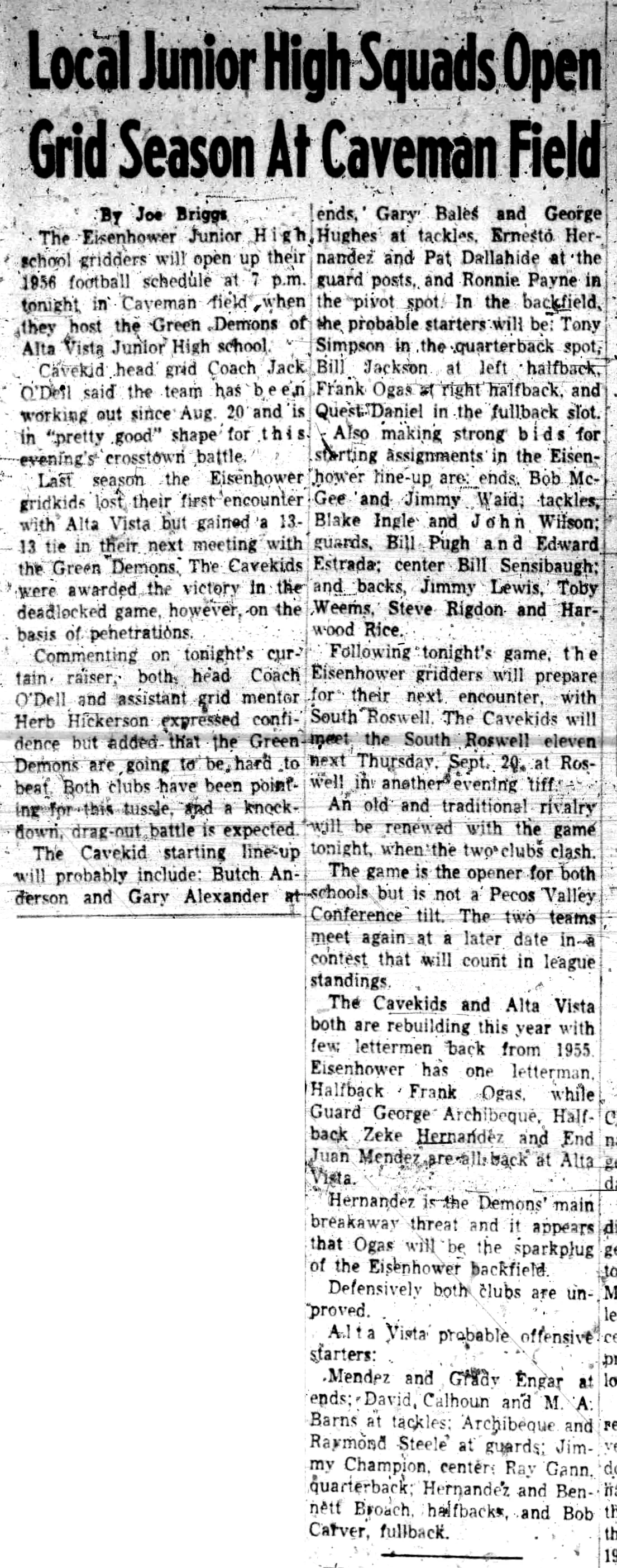
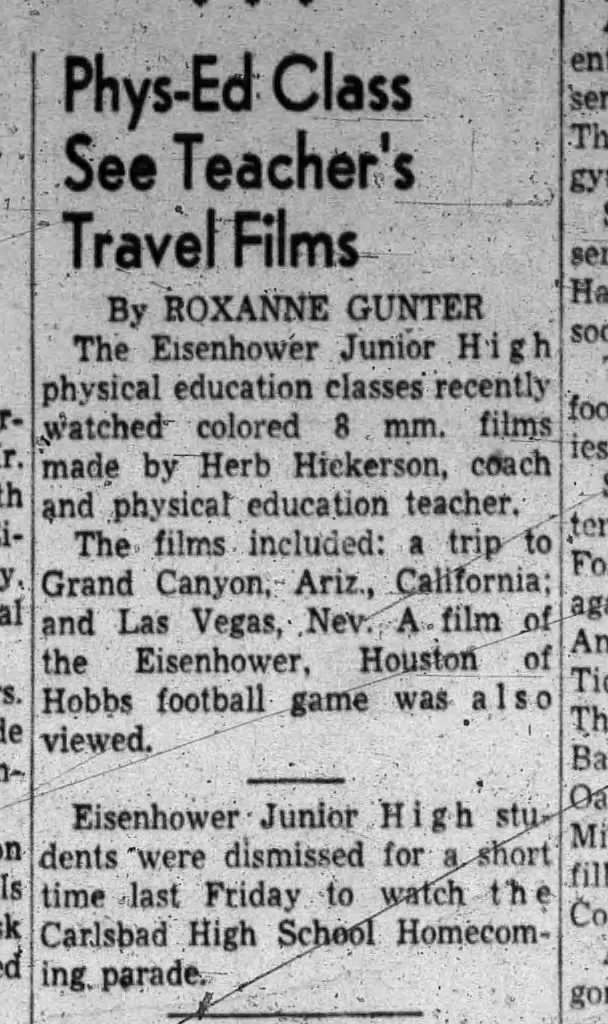
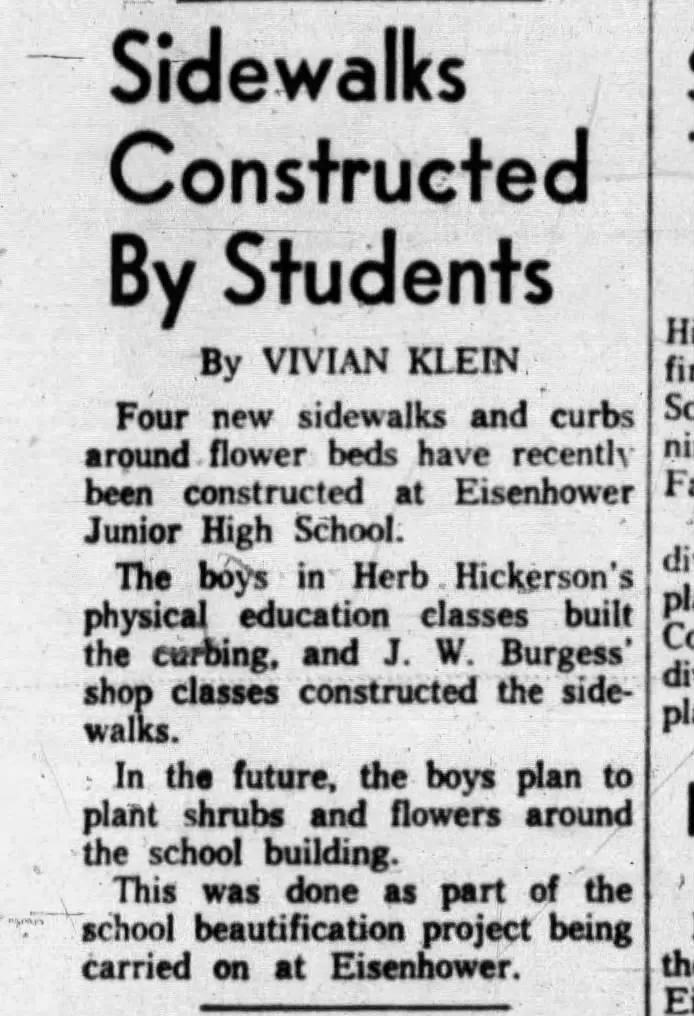
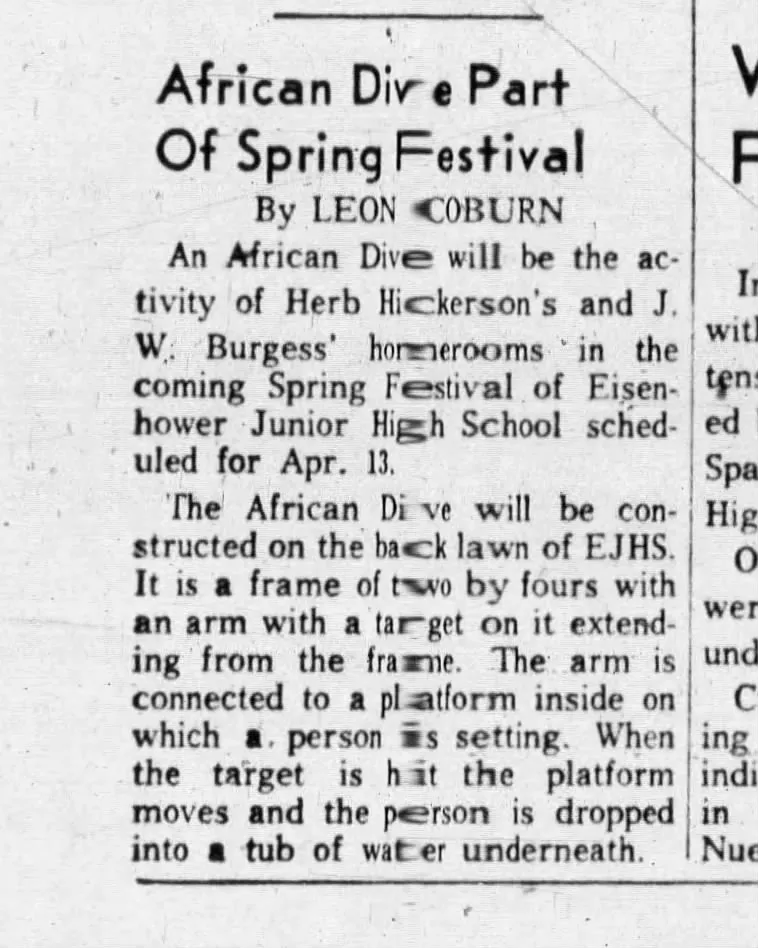
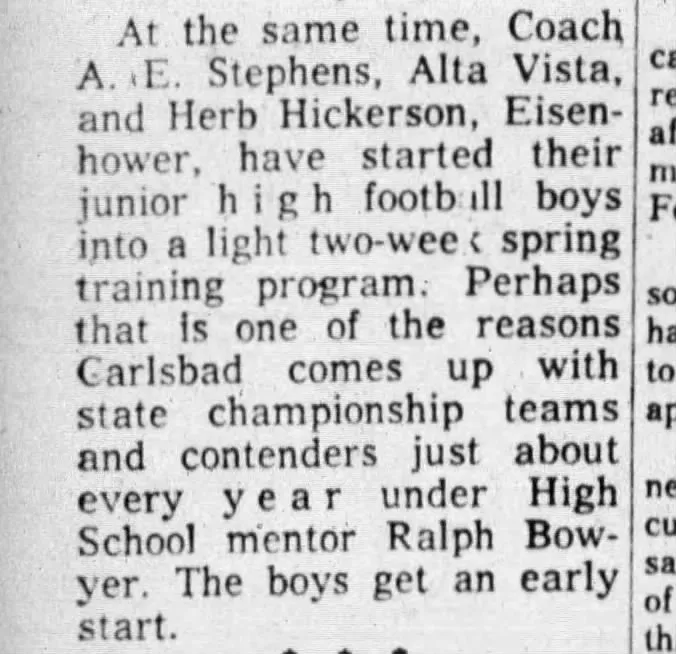
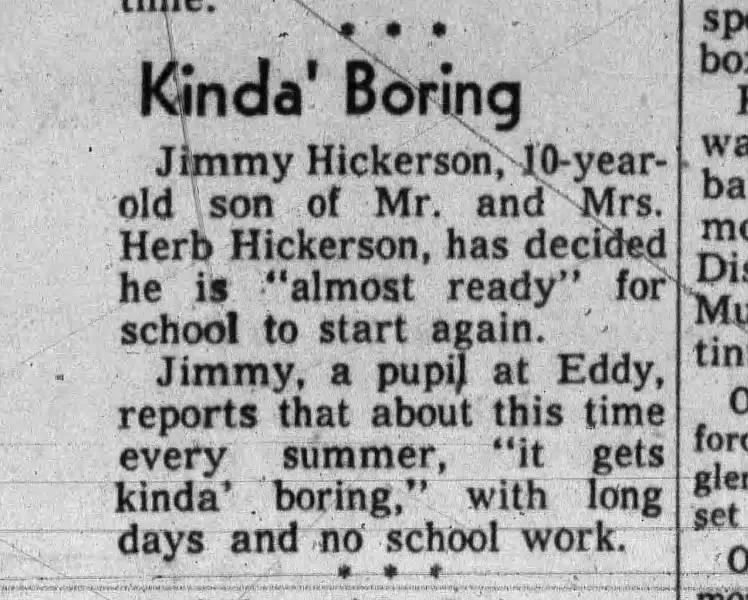
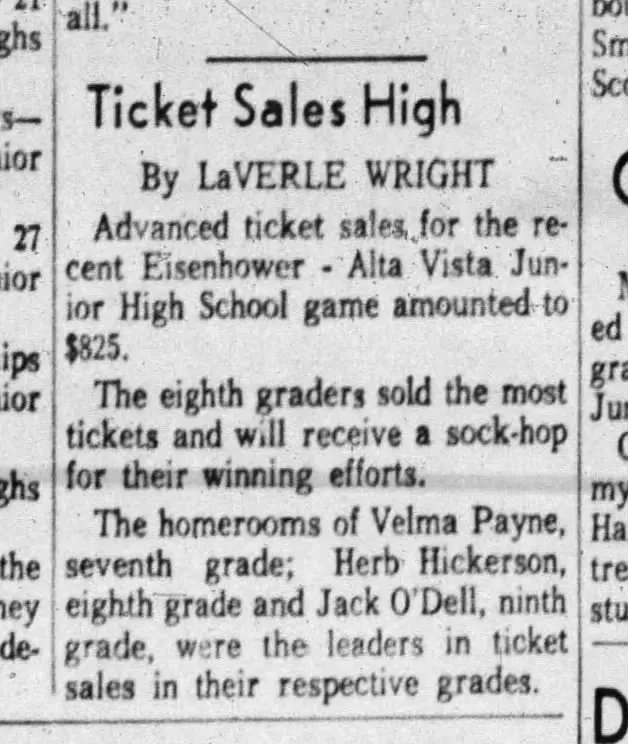
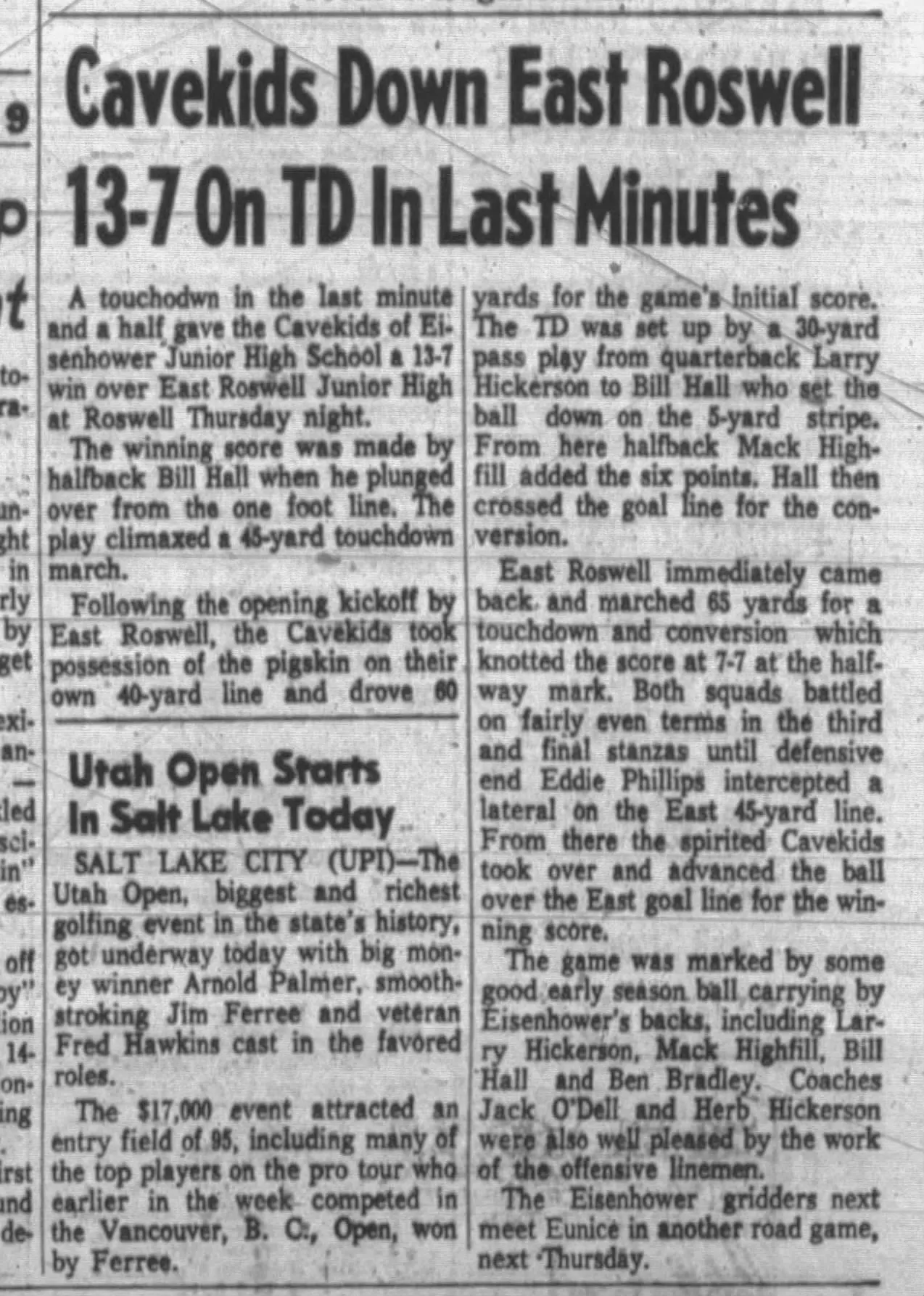
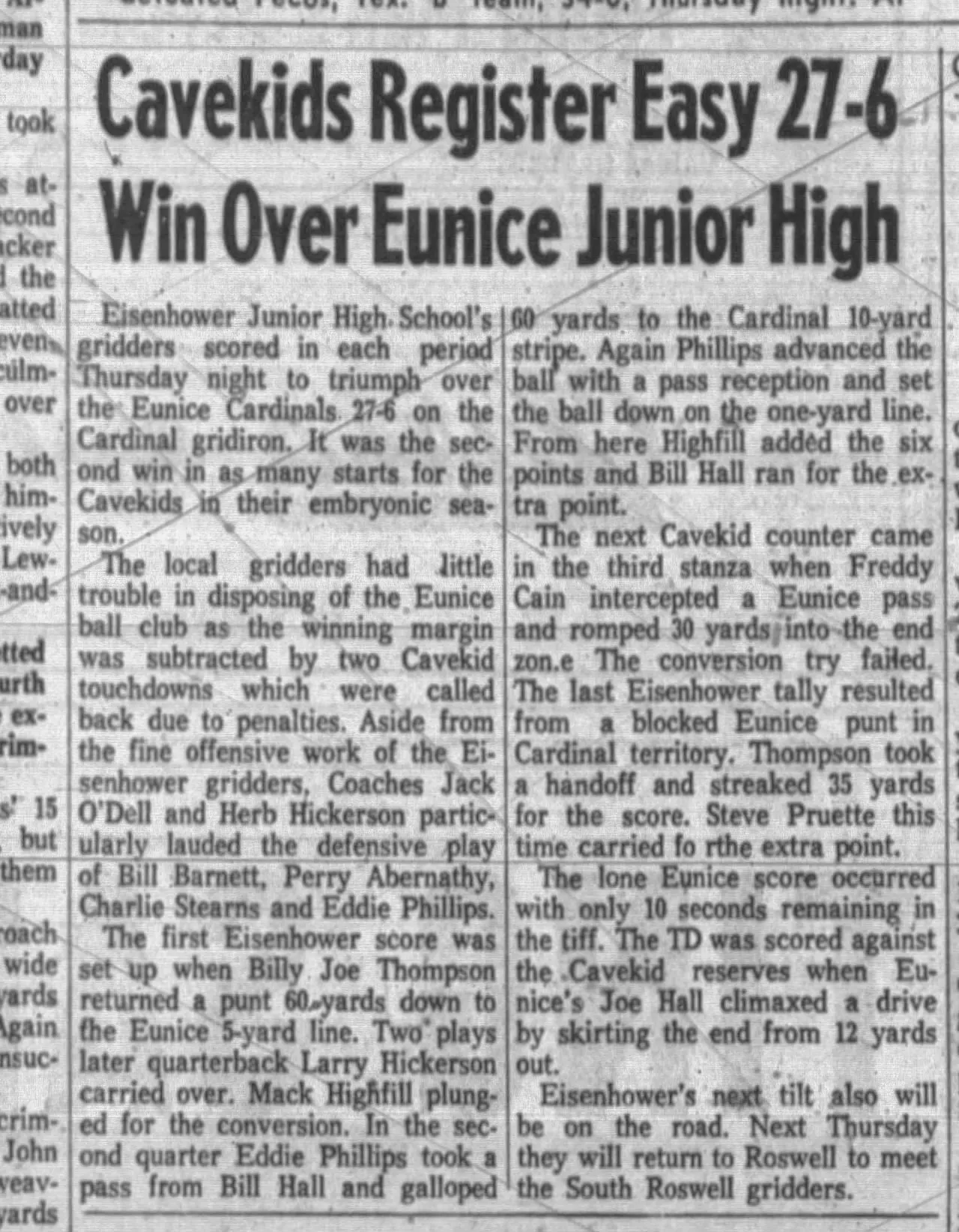
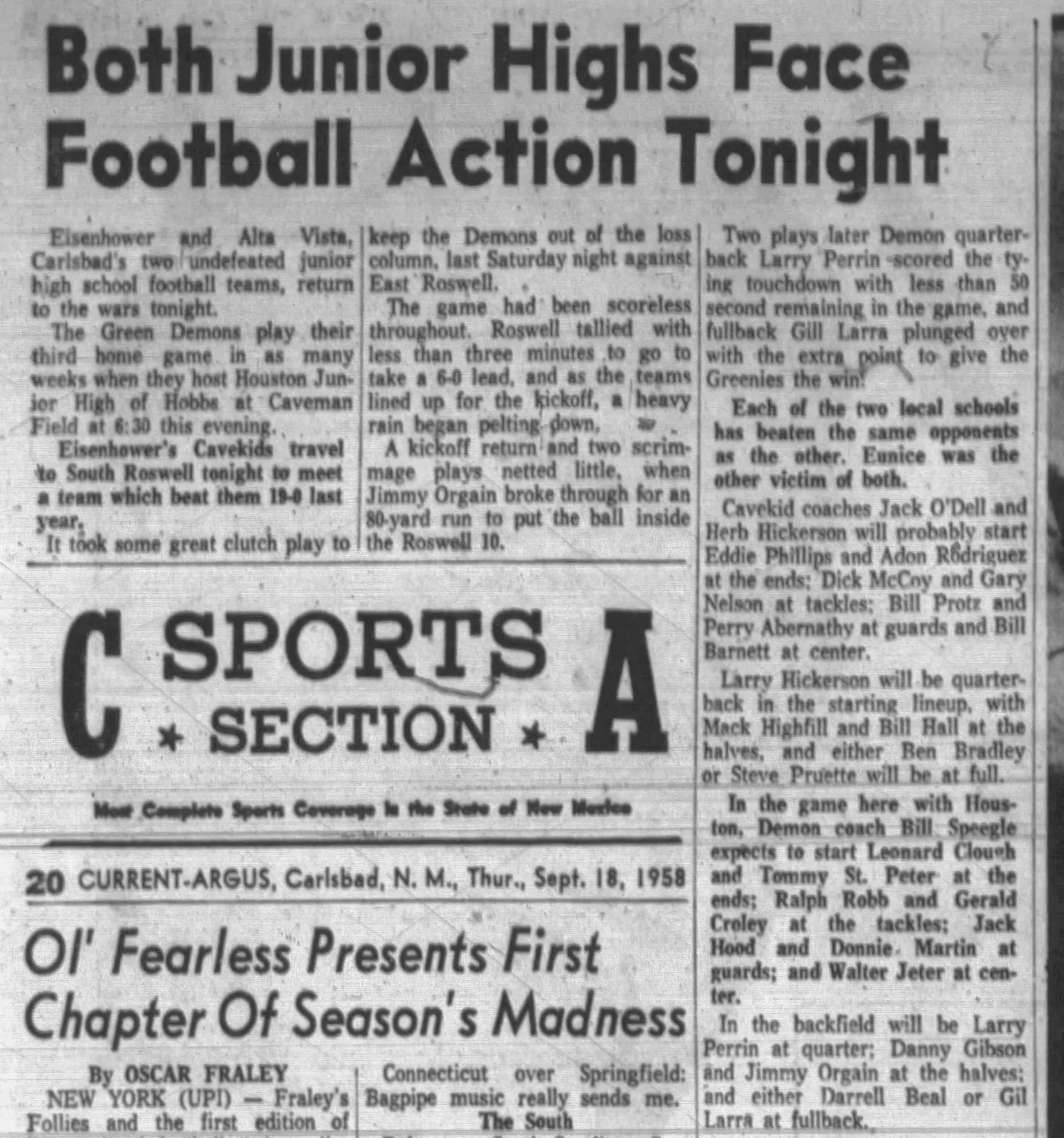
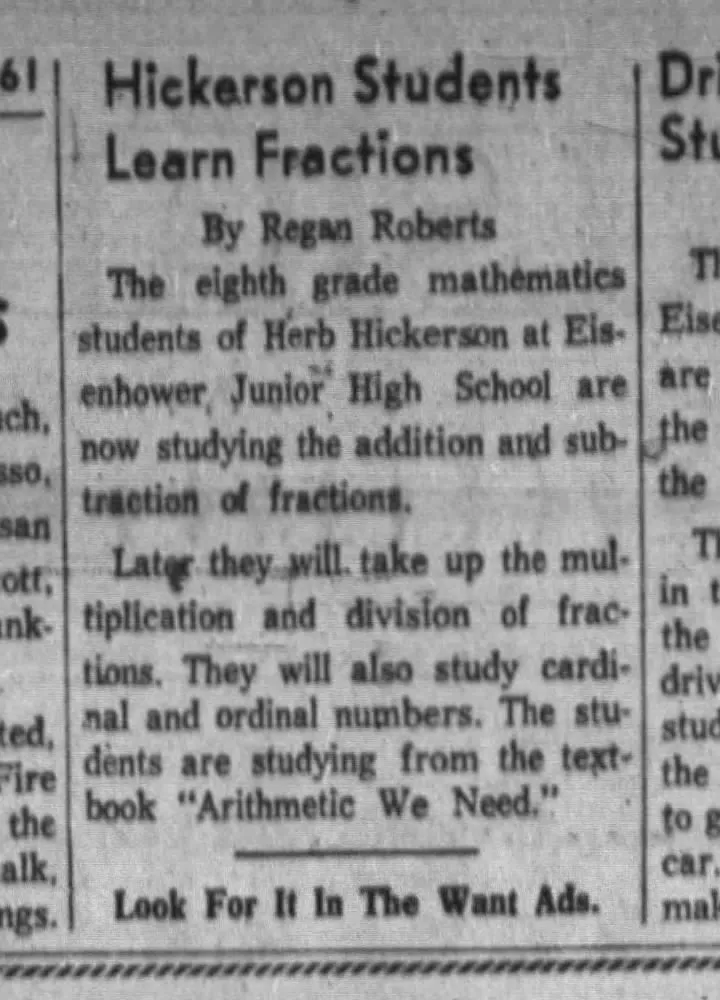
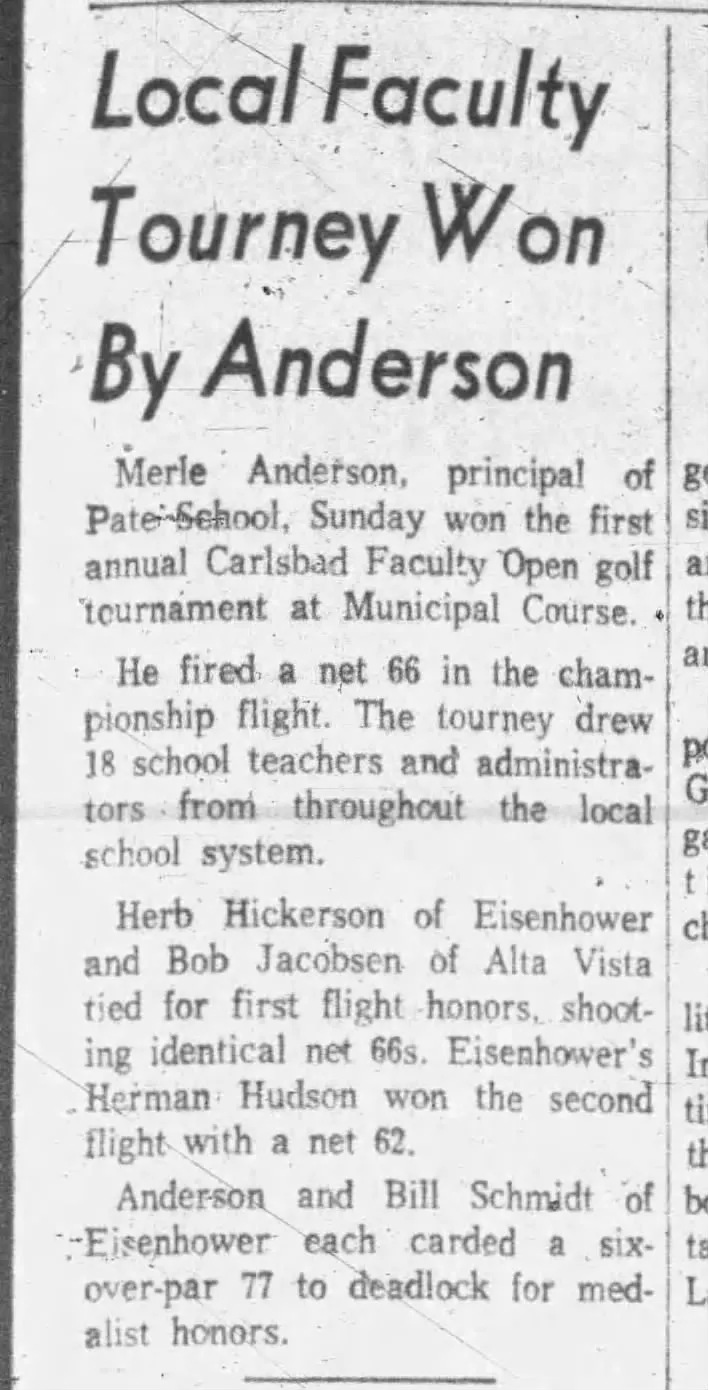
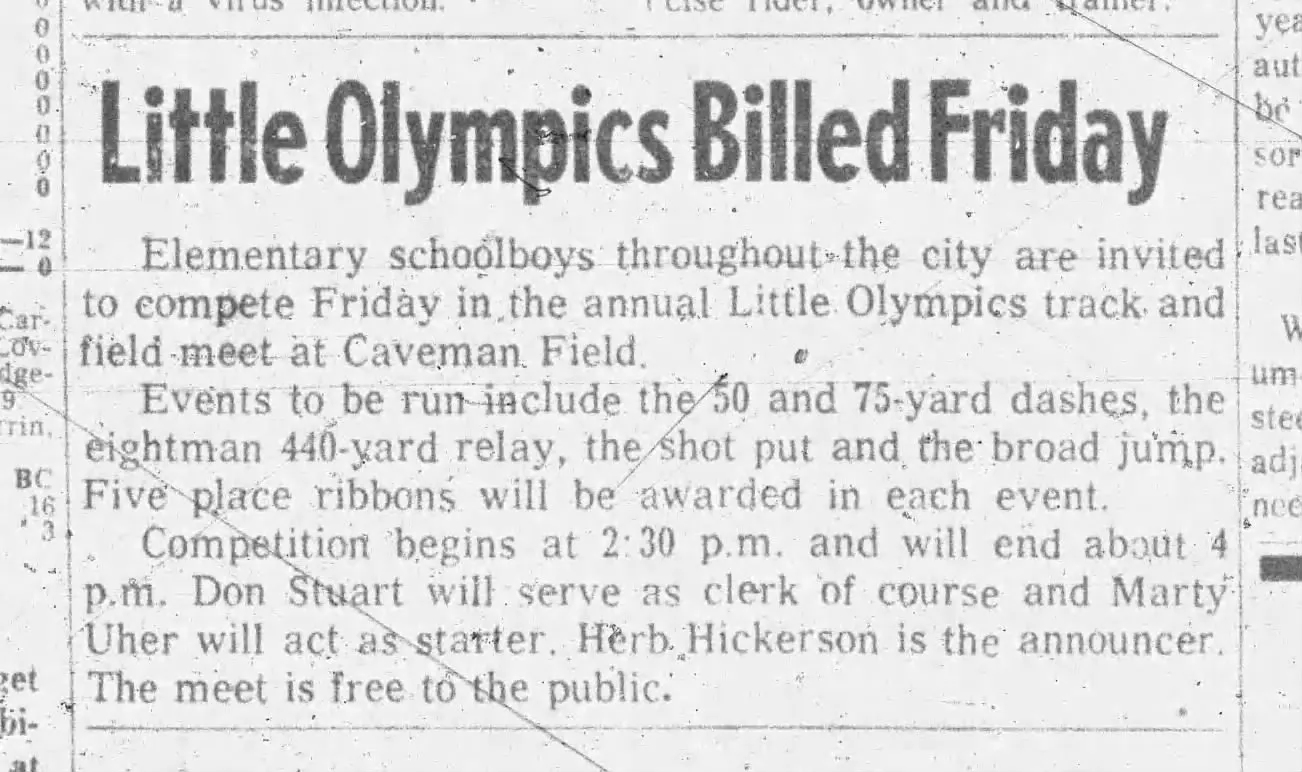
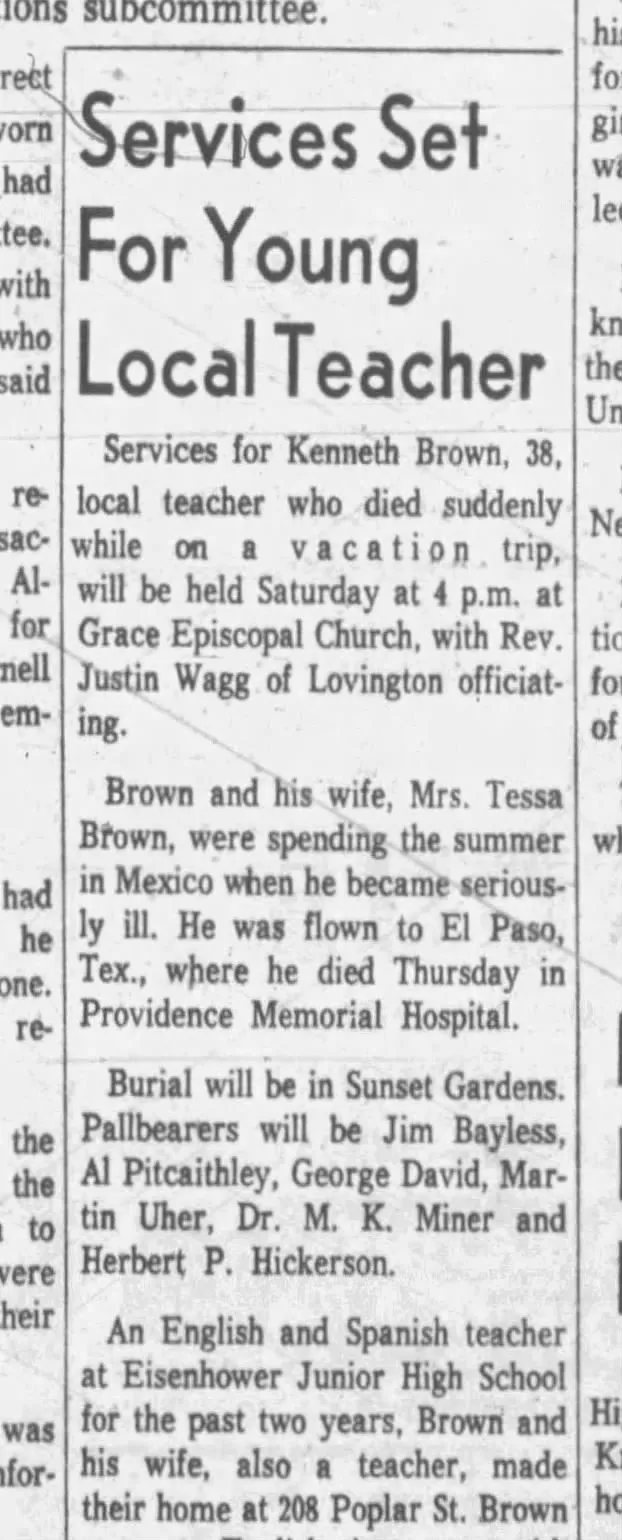

Franz Schubert : The Trout (Die Forelle)